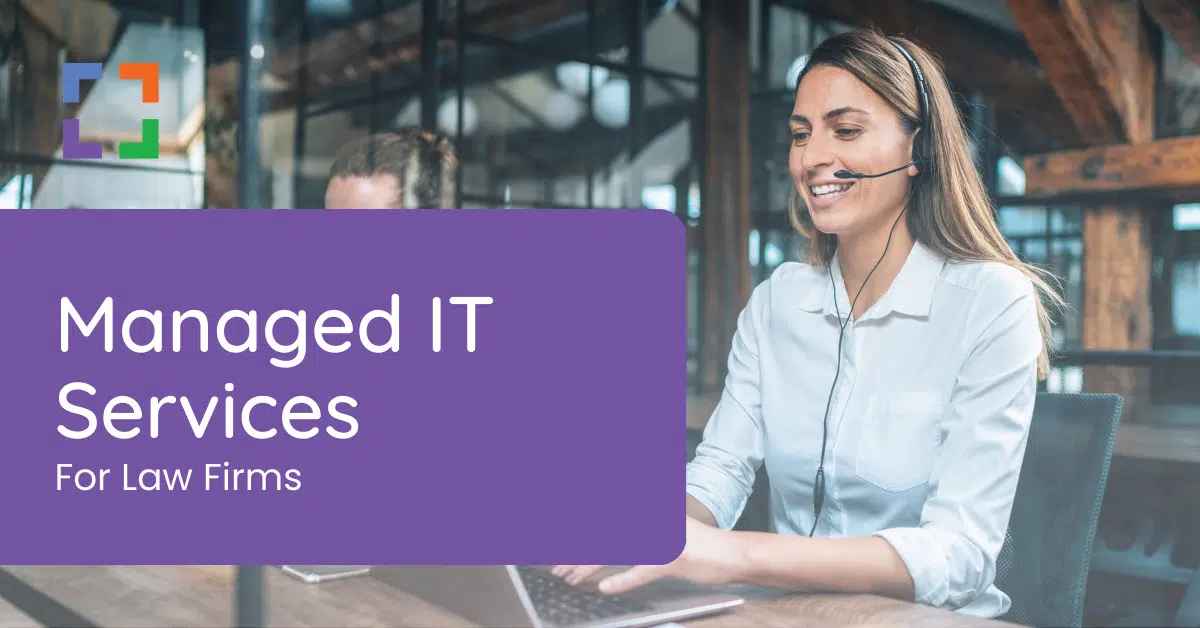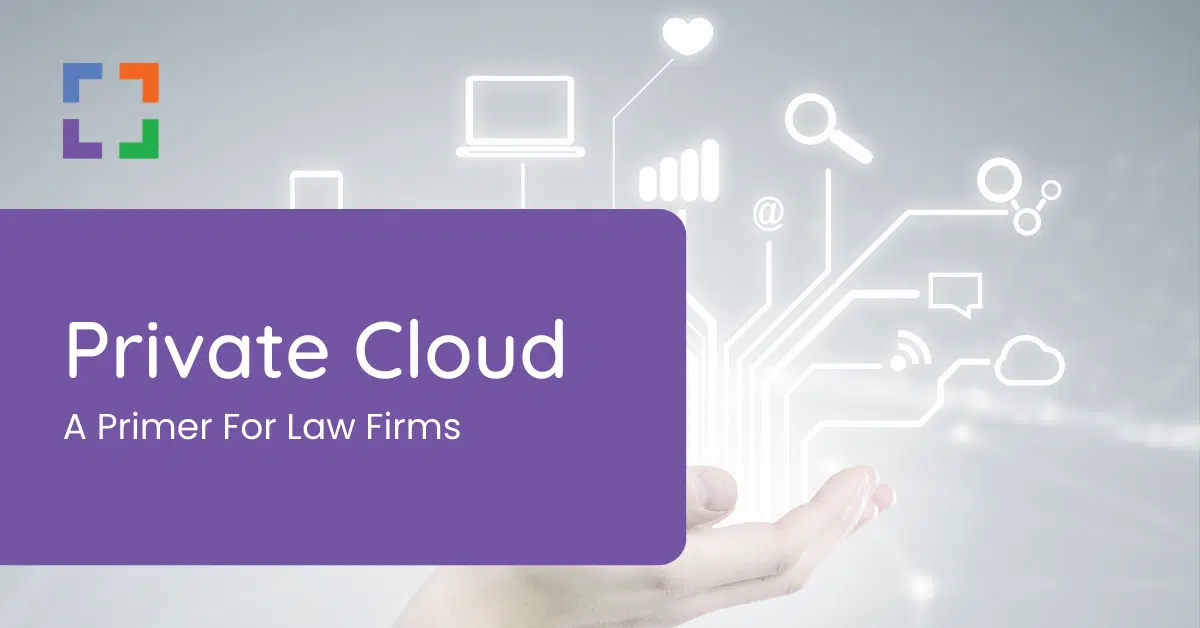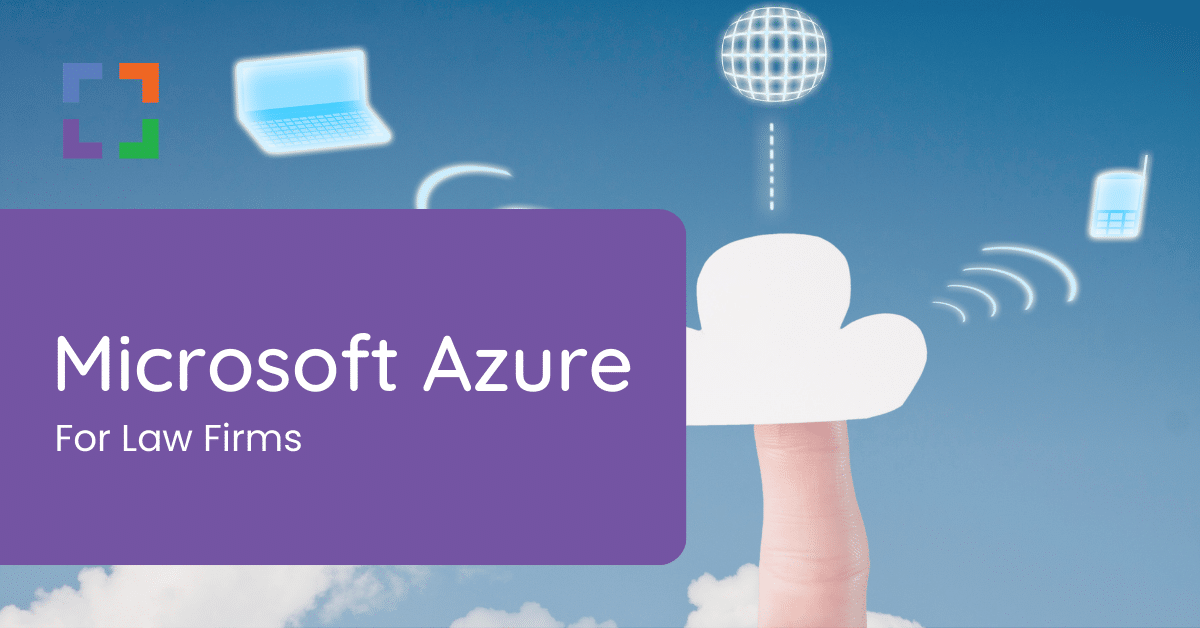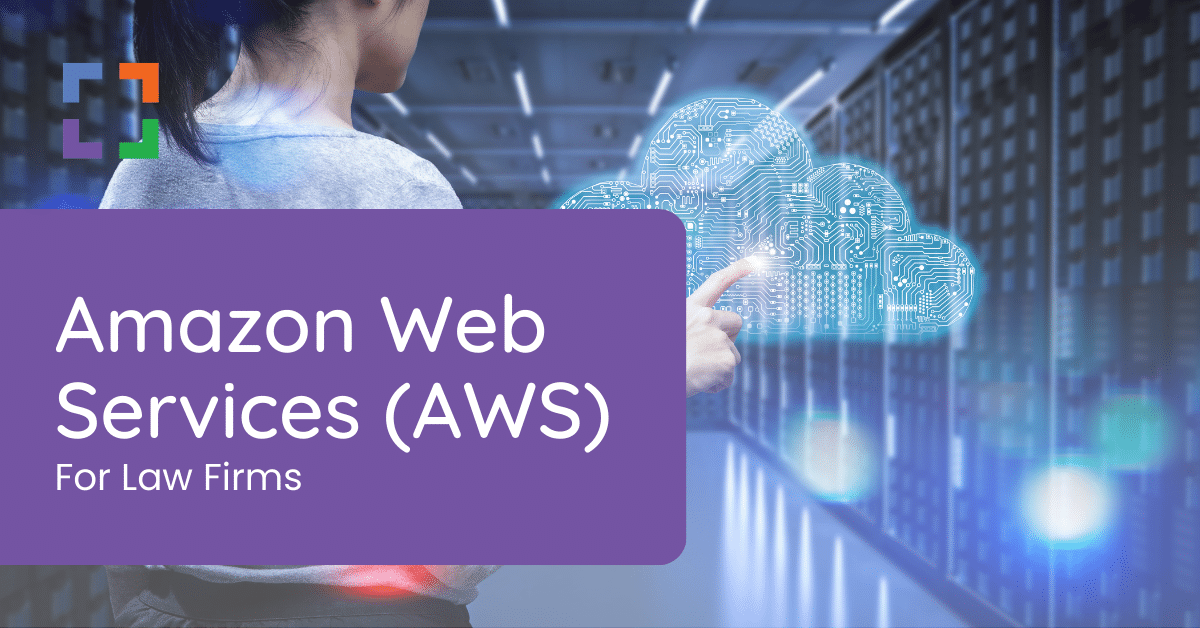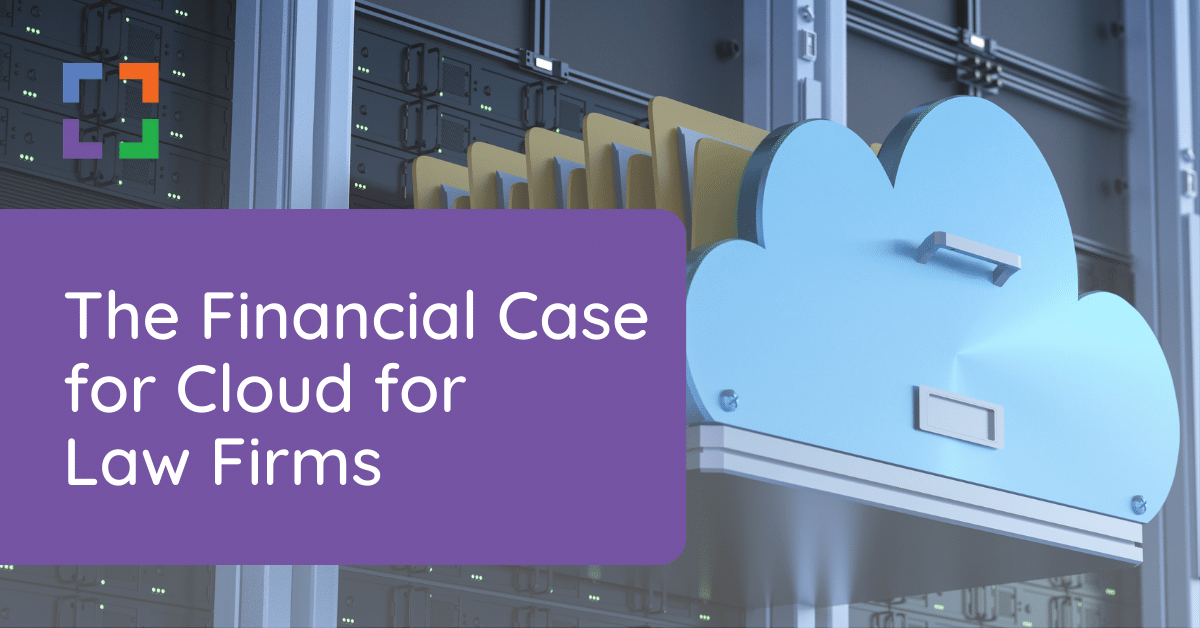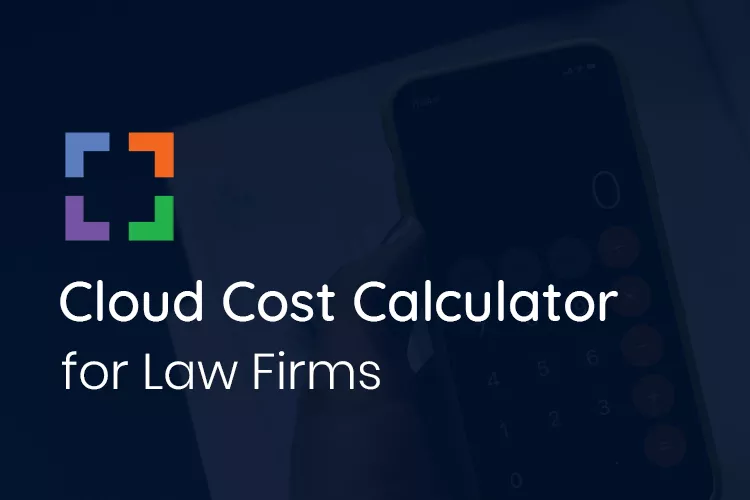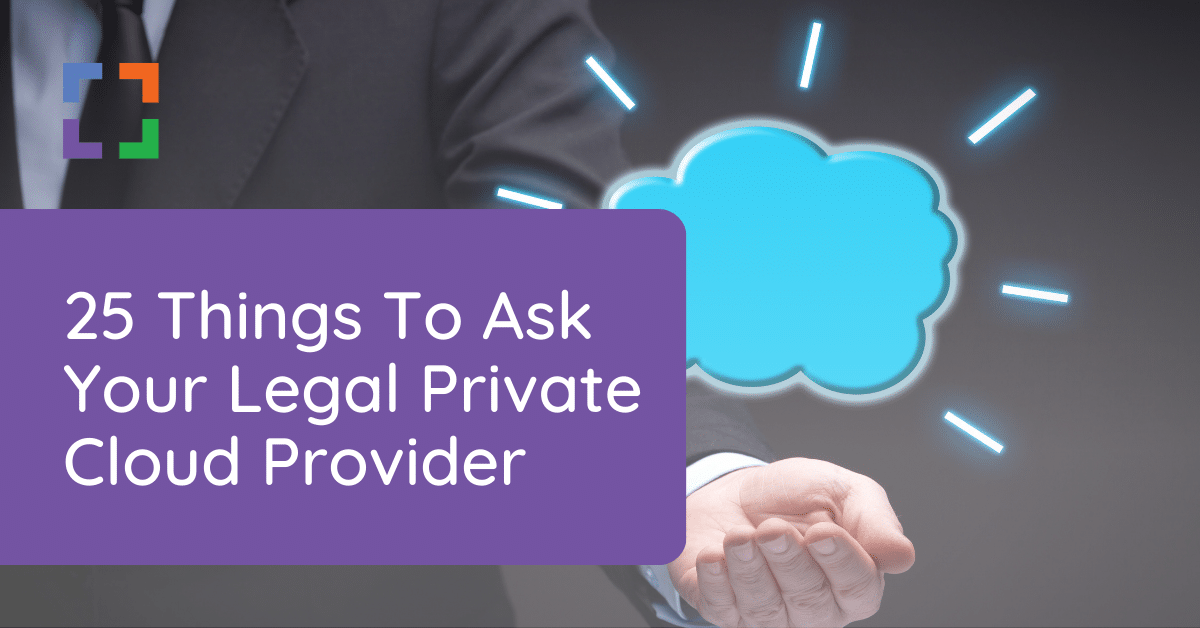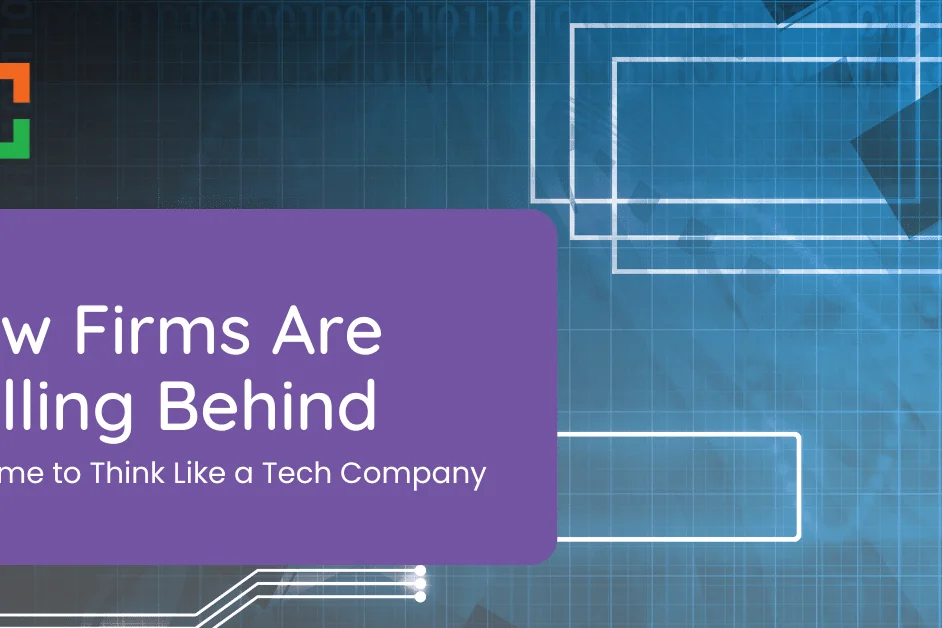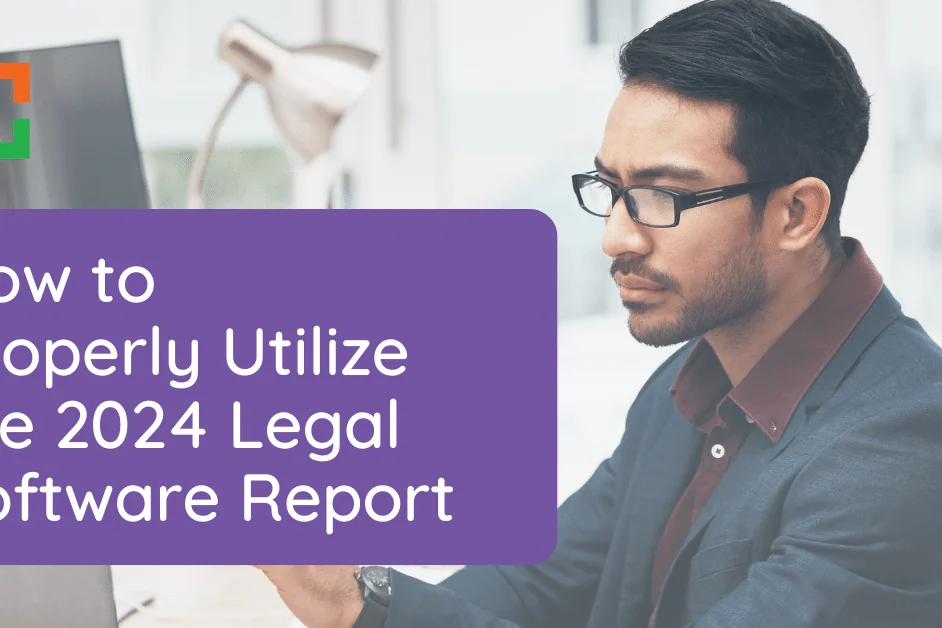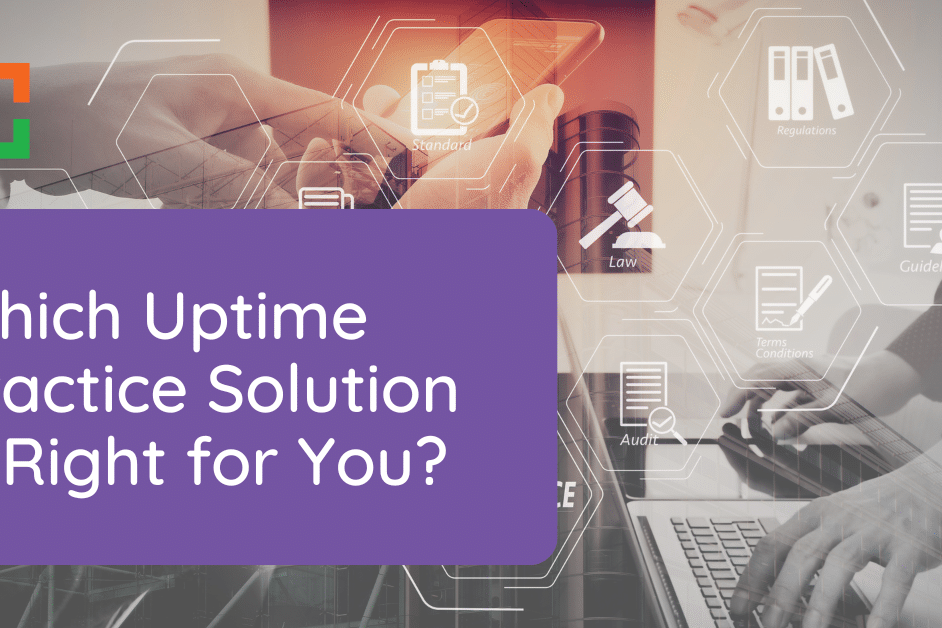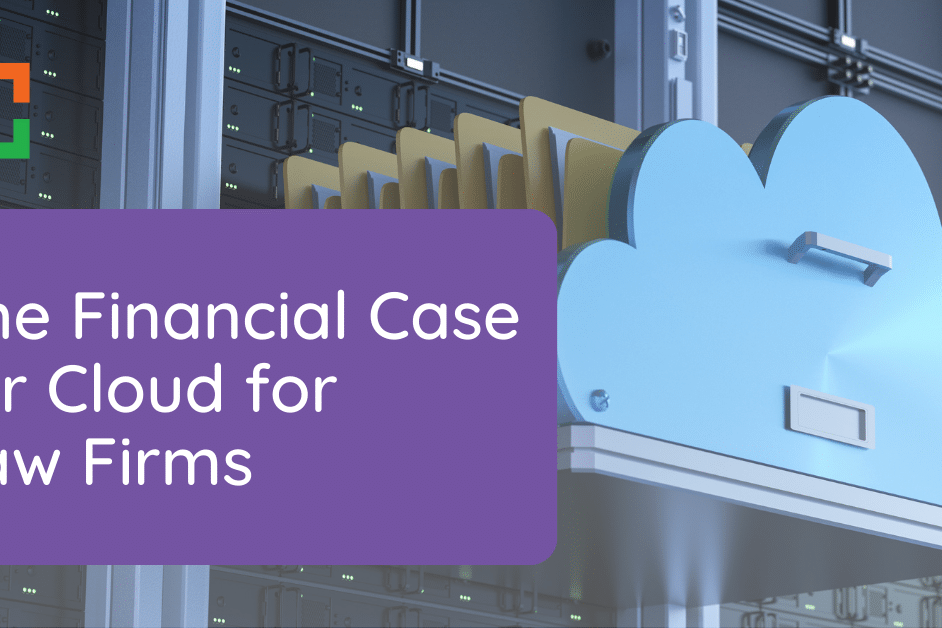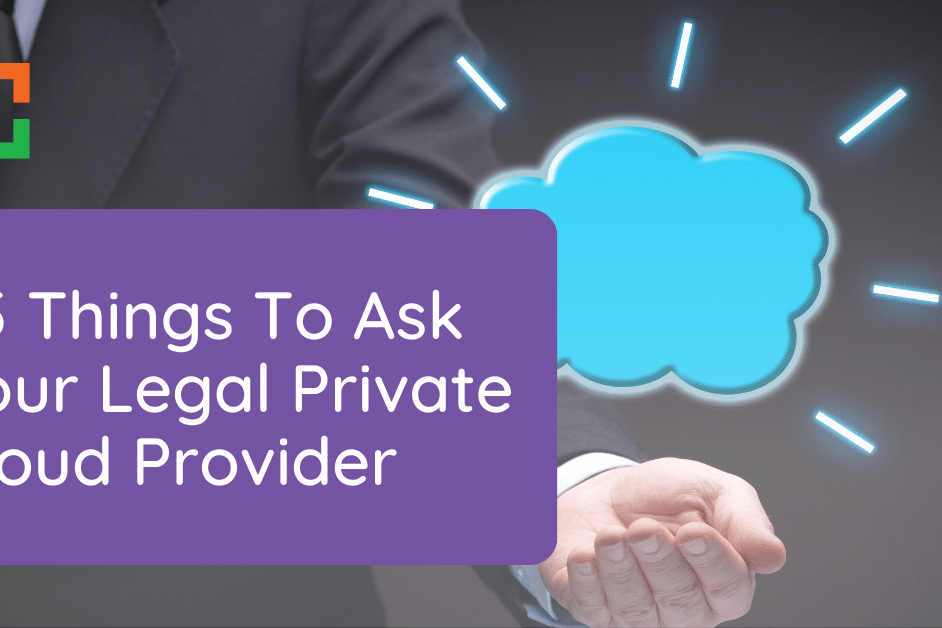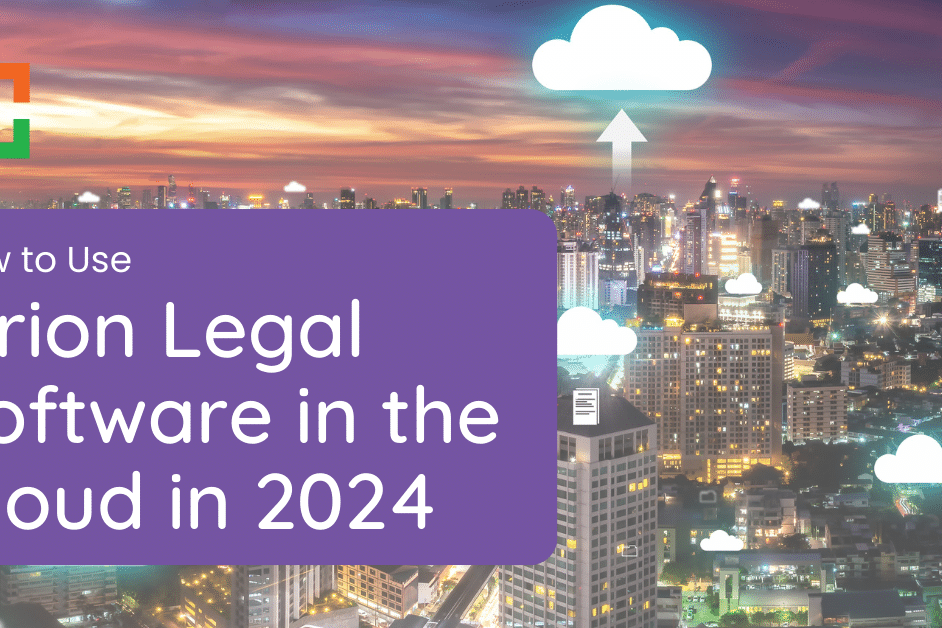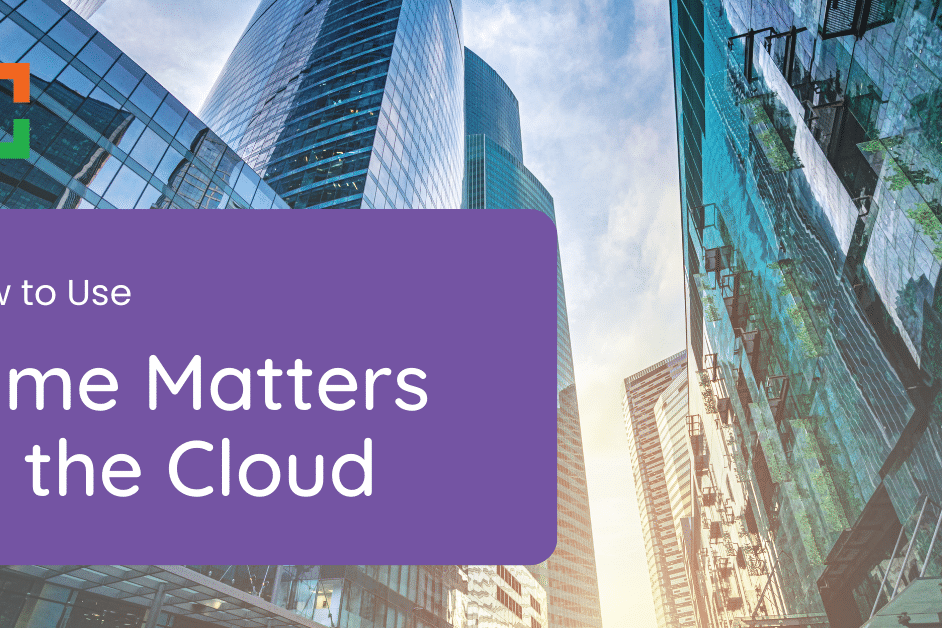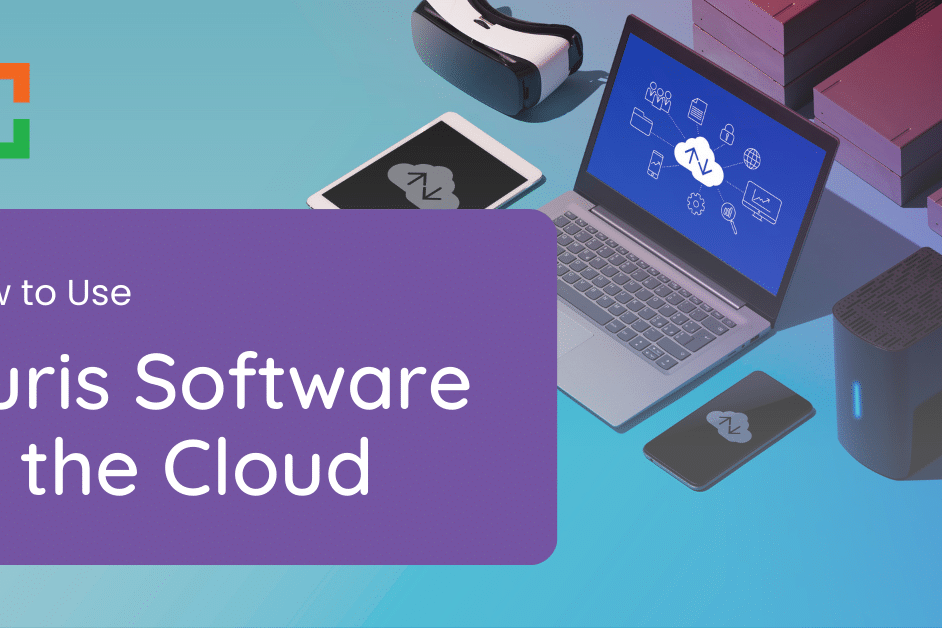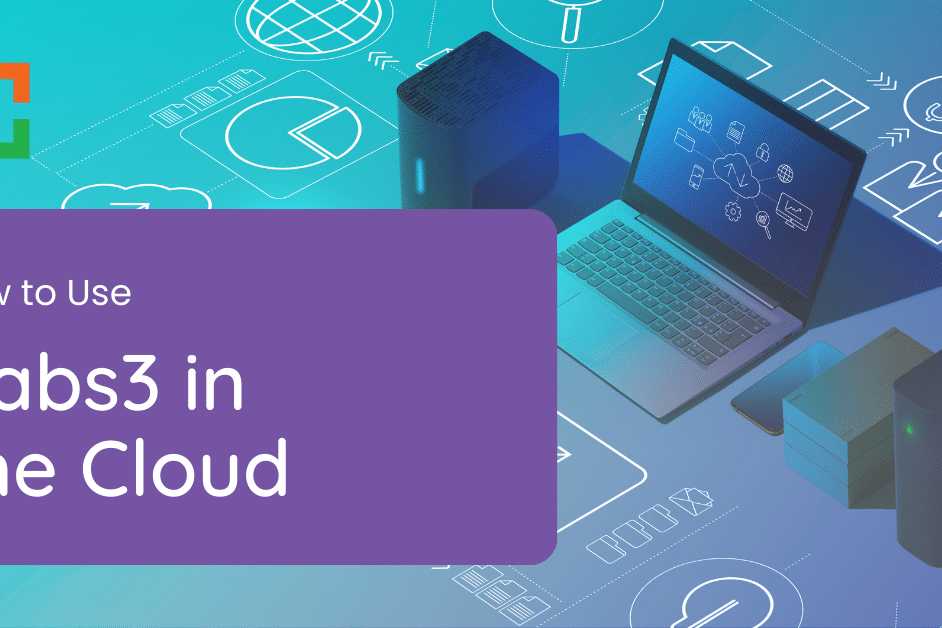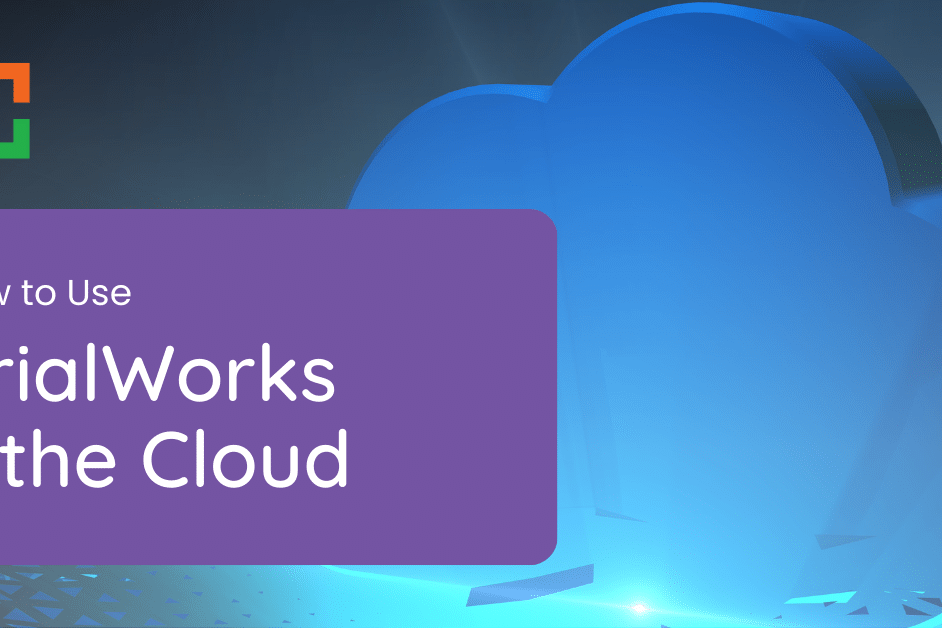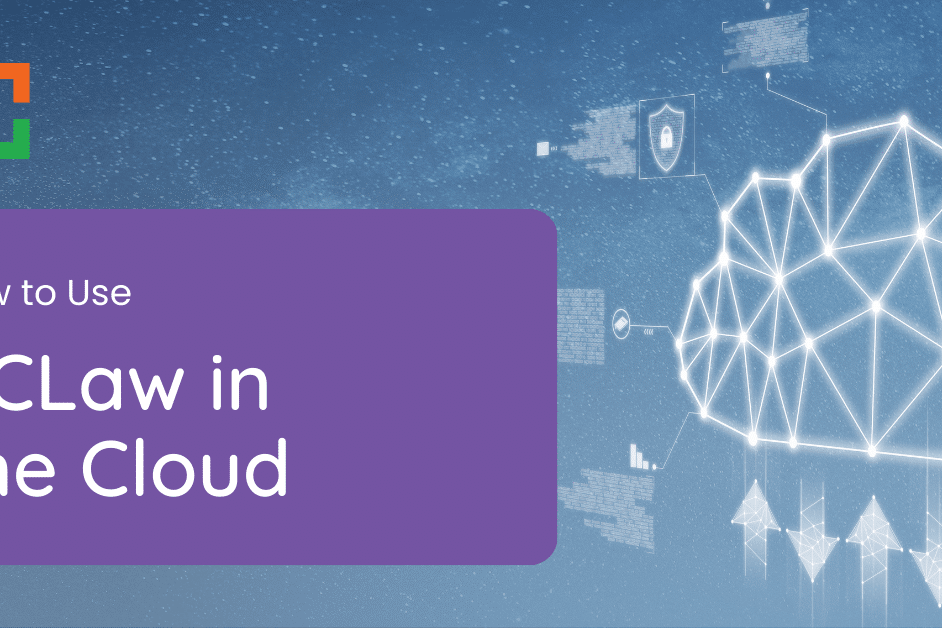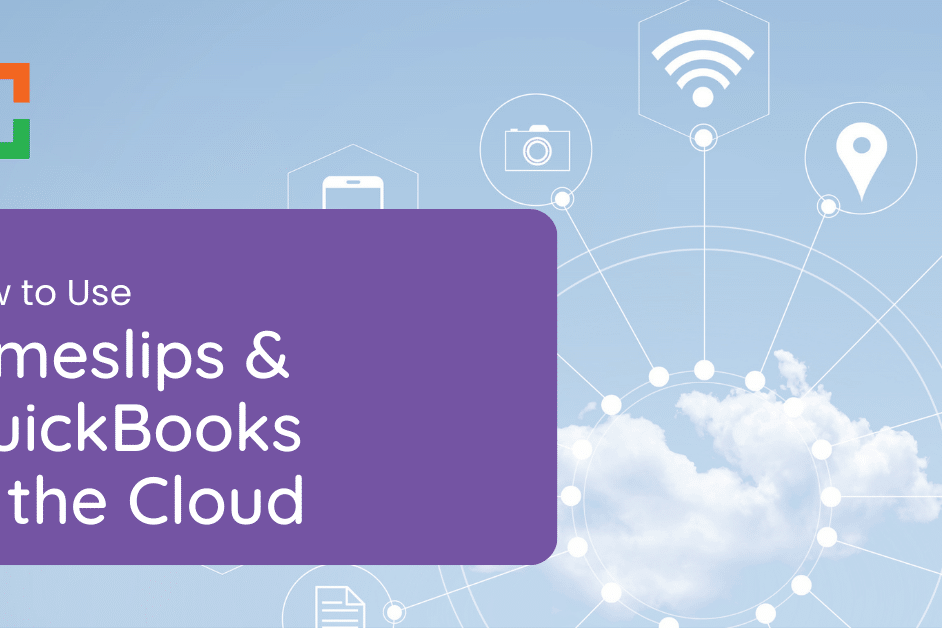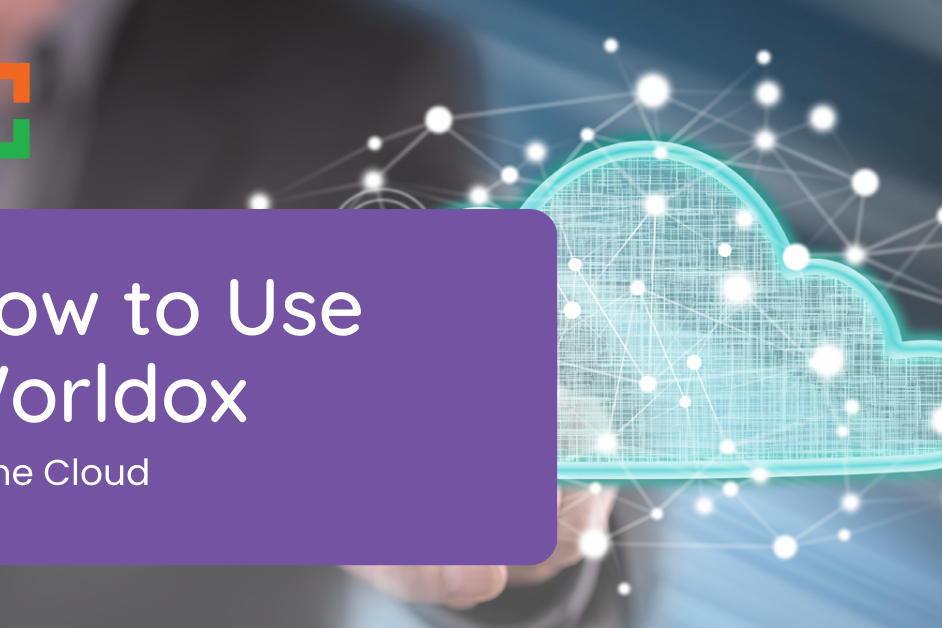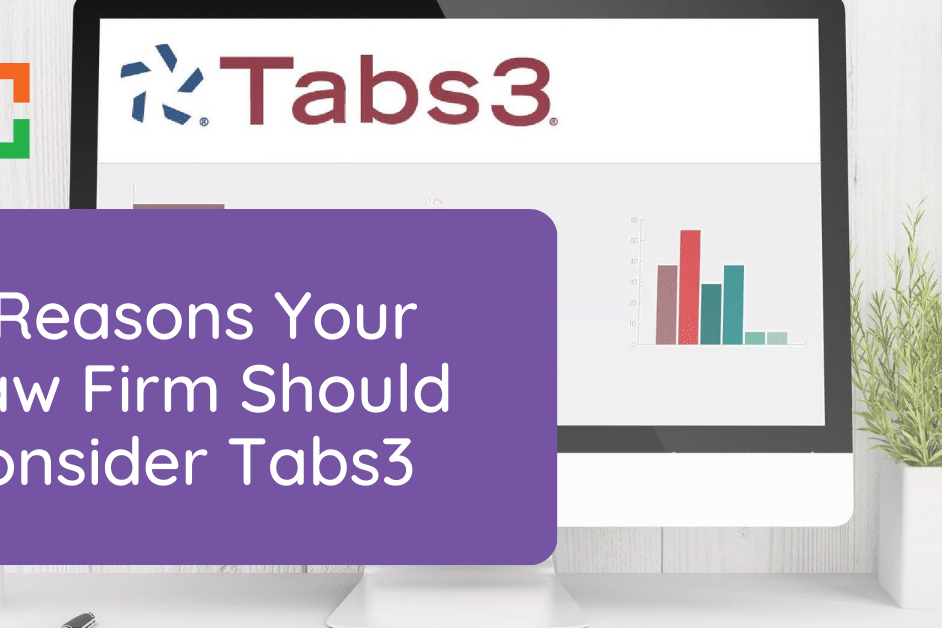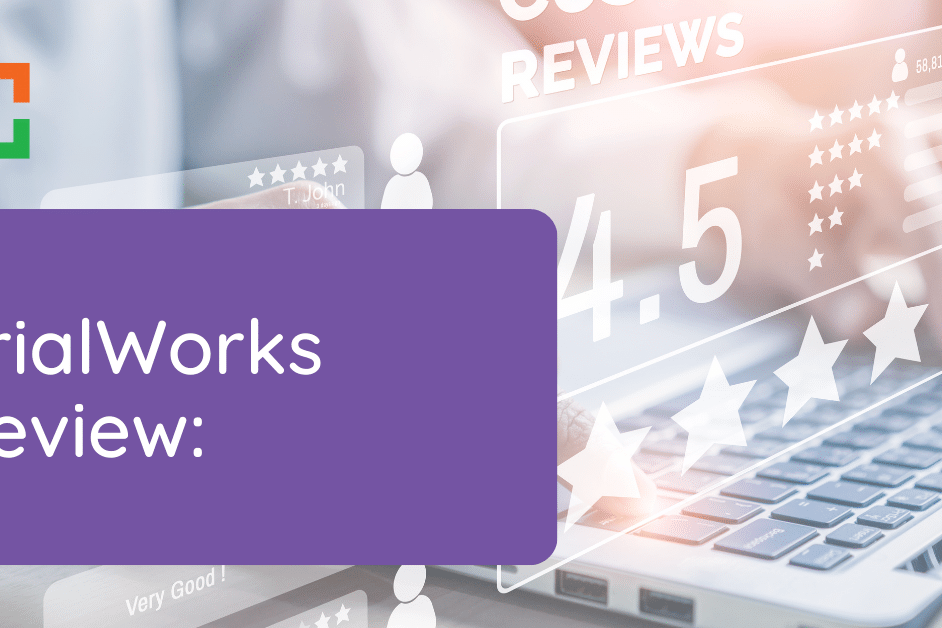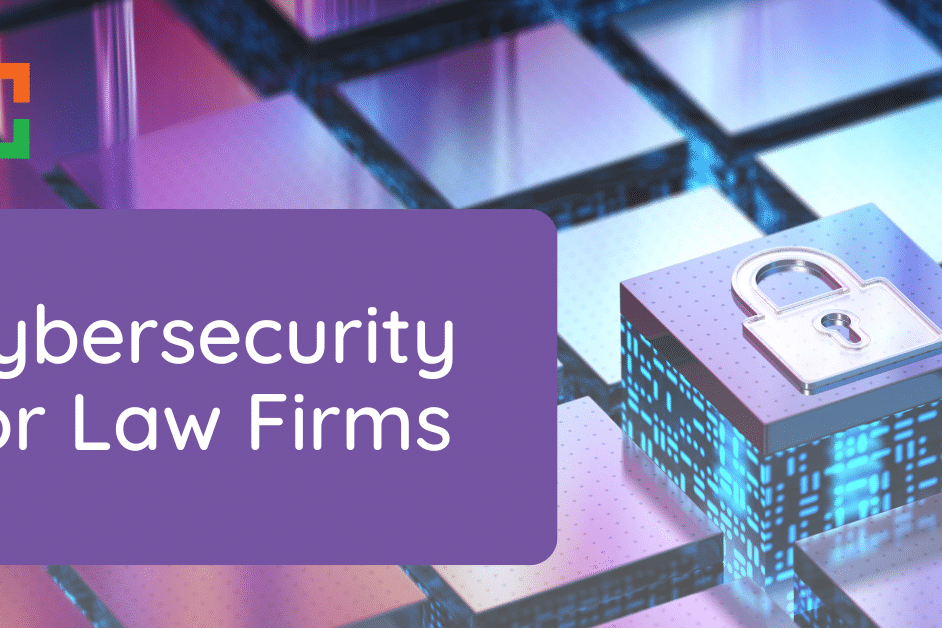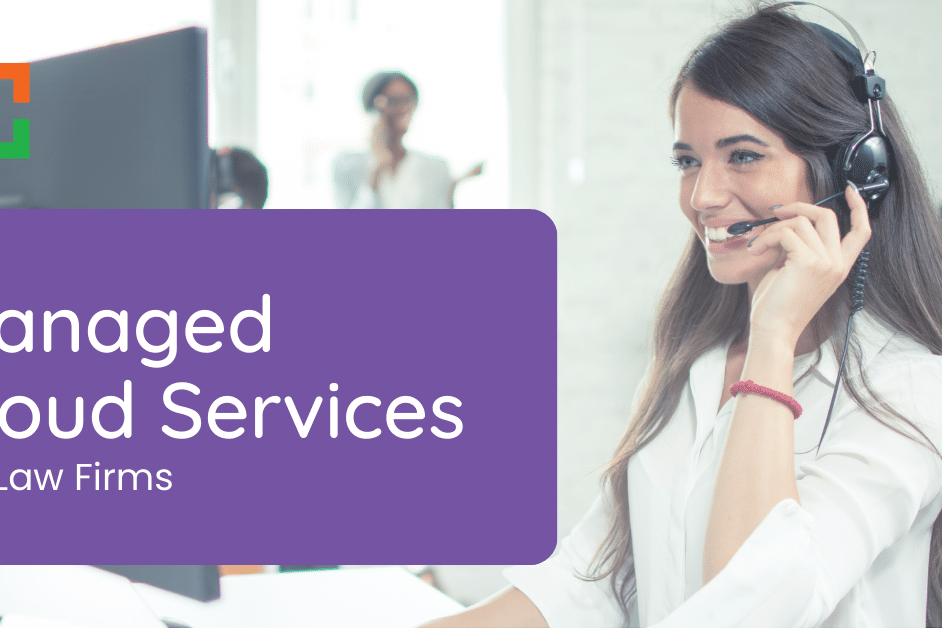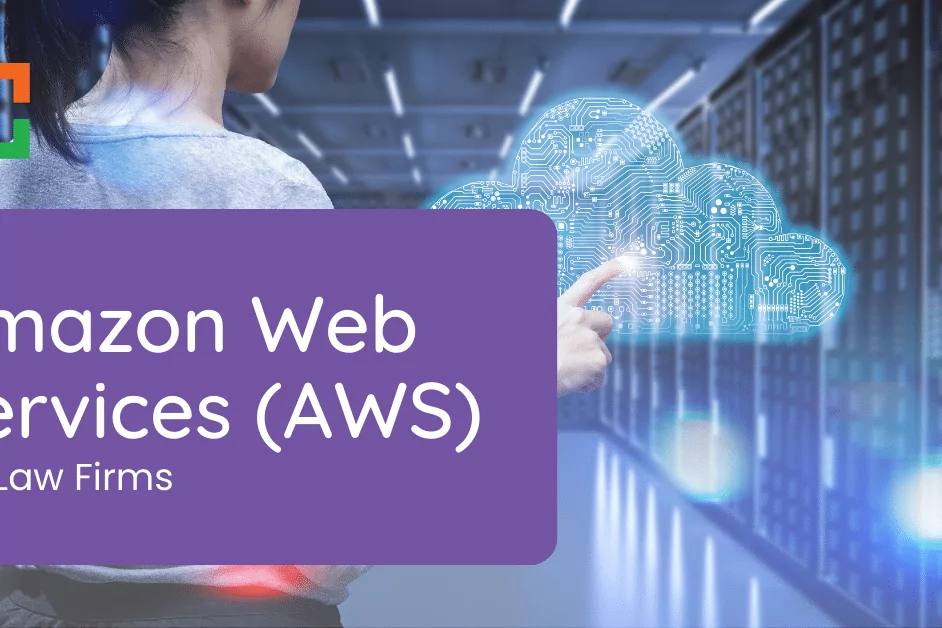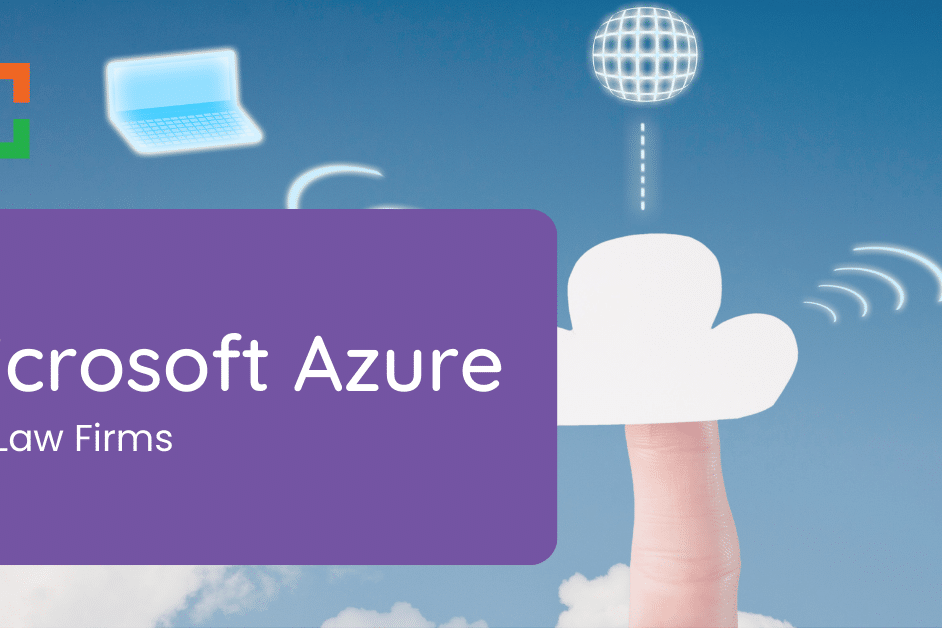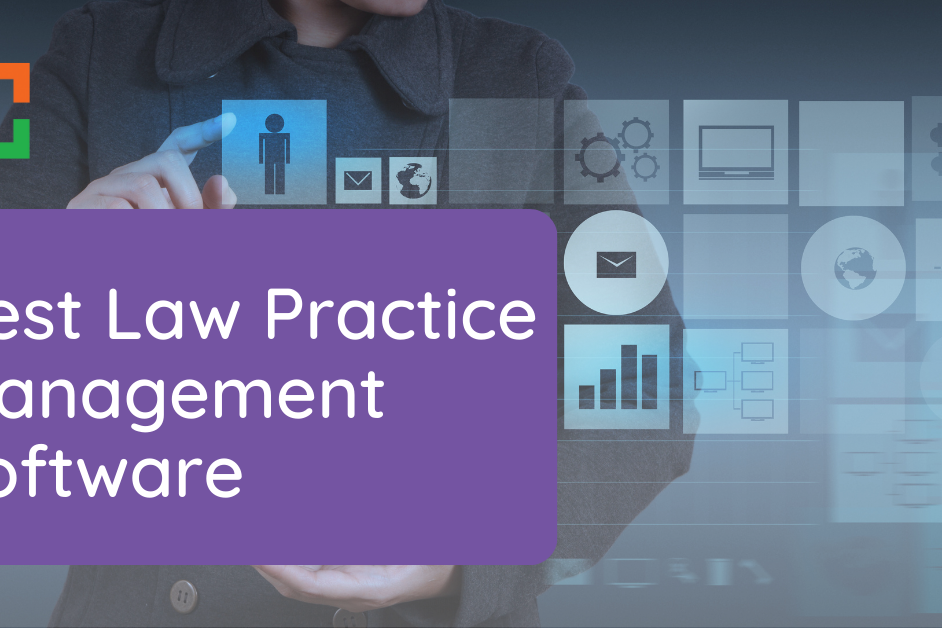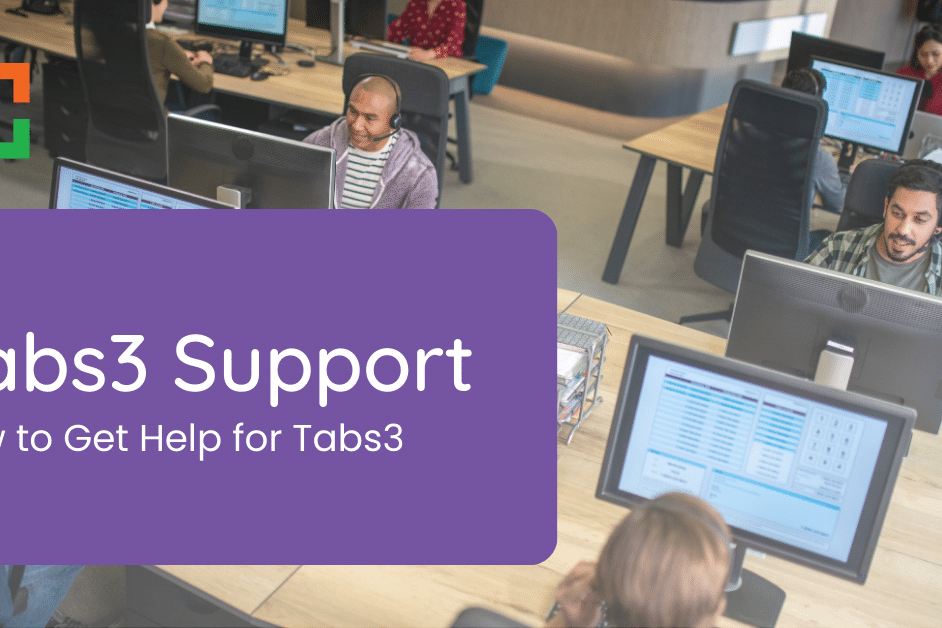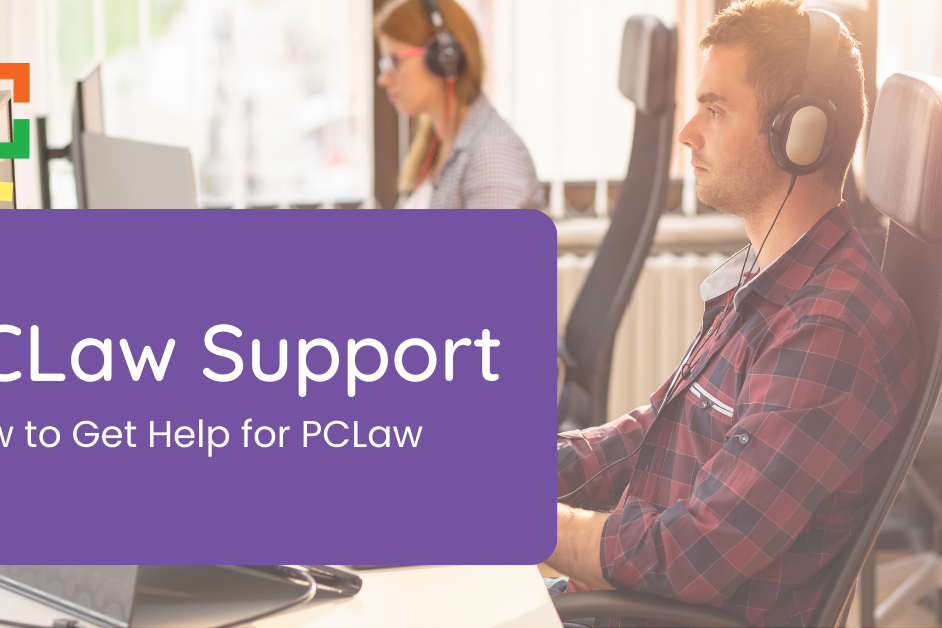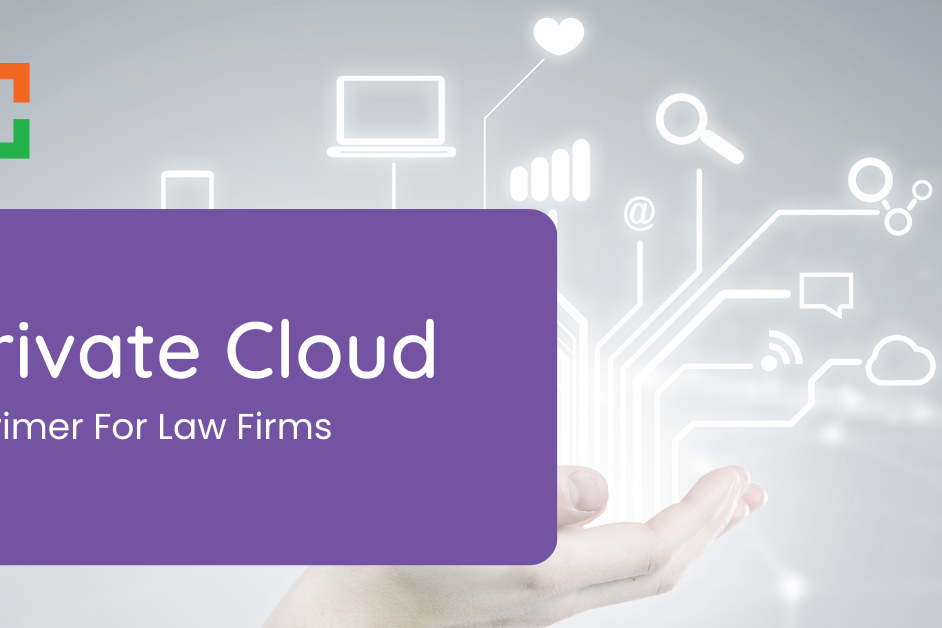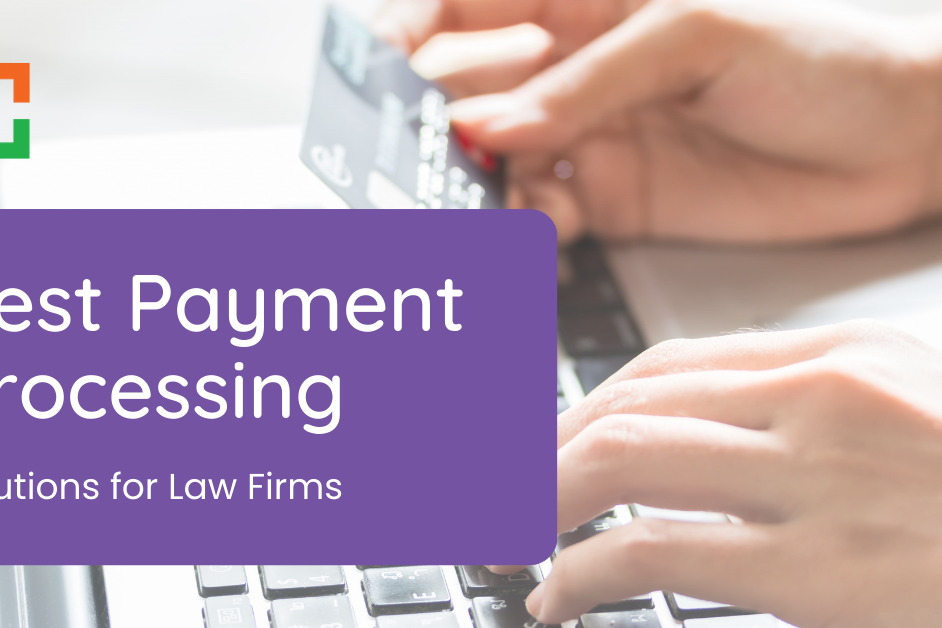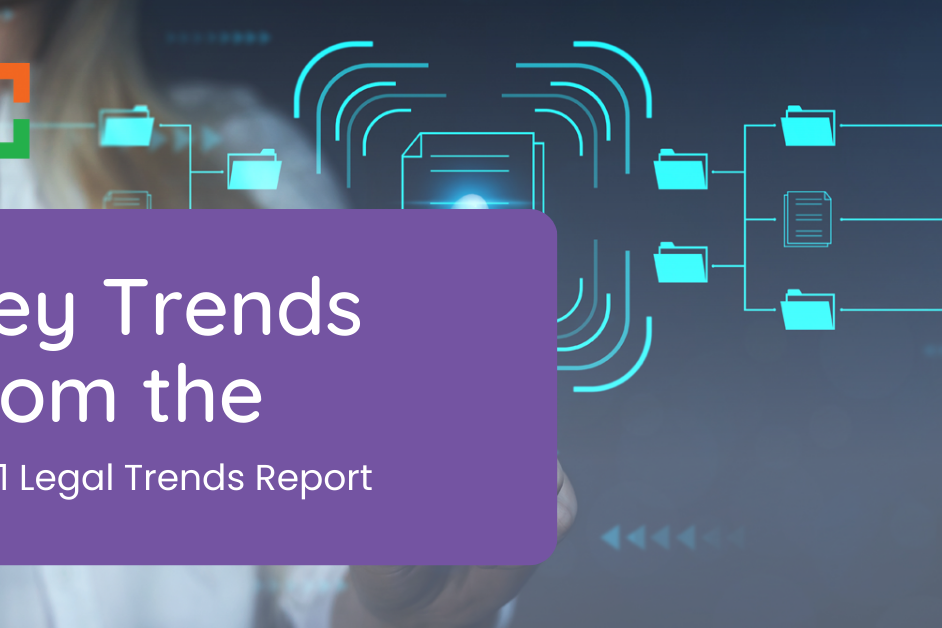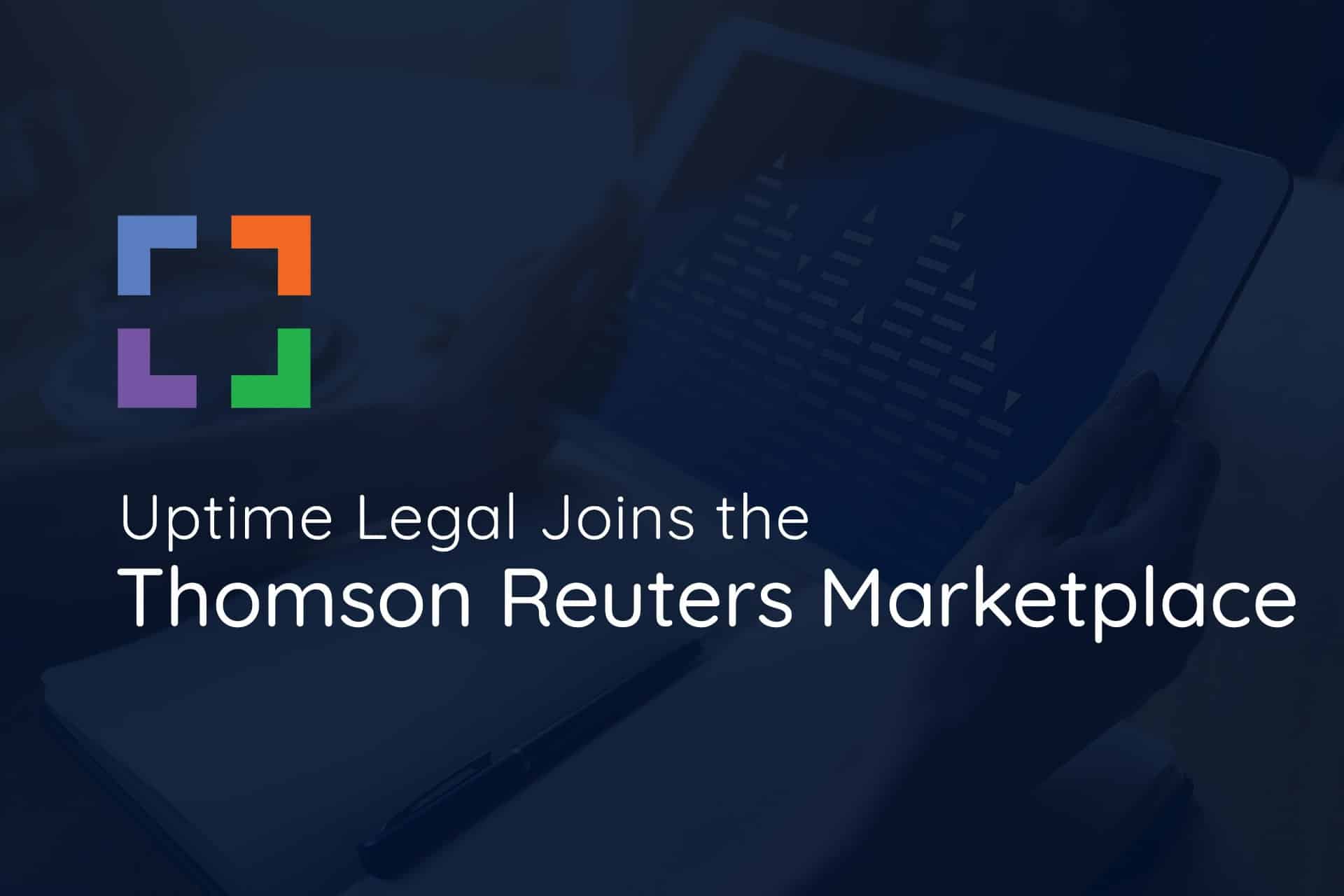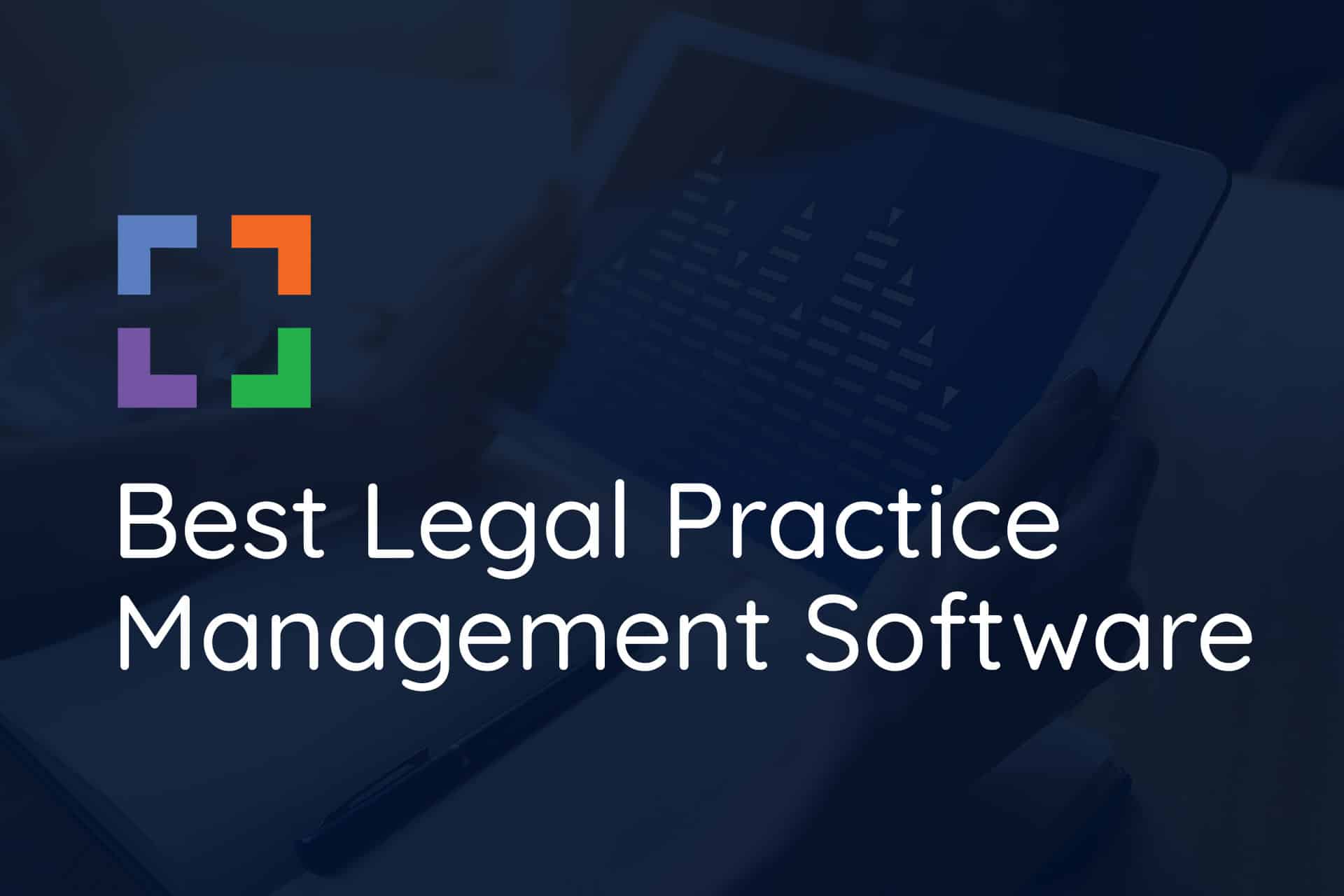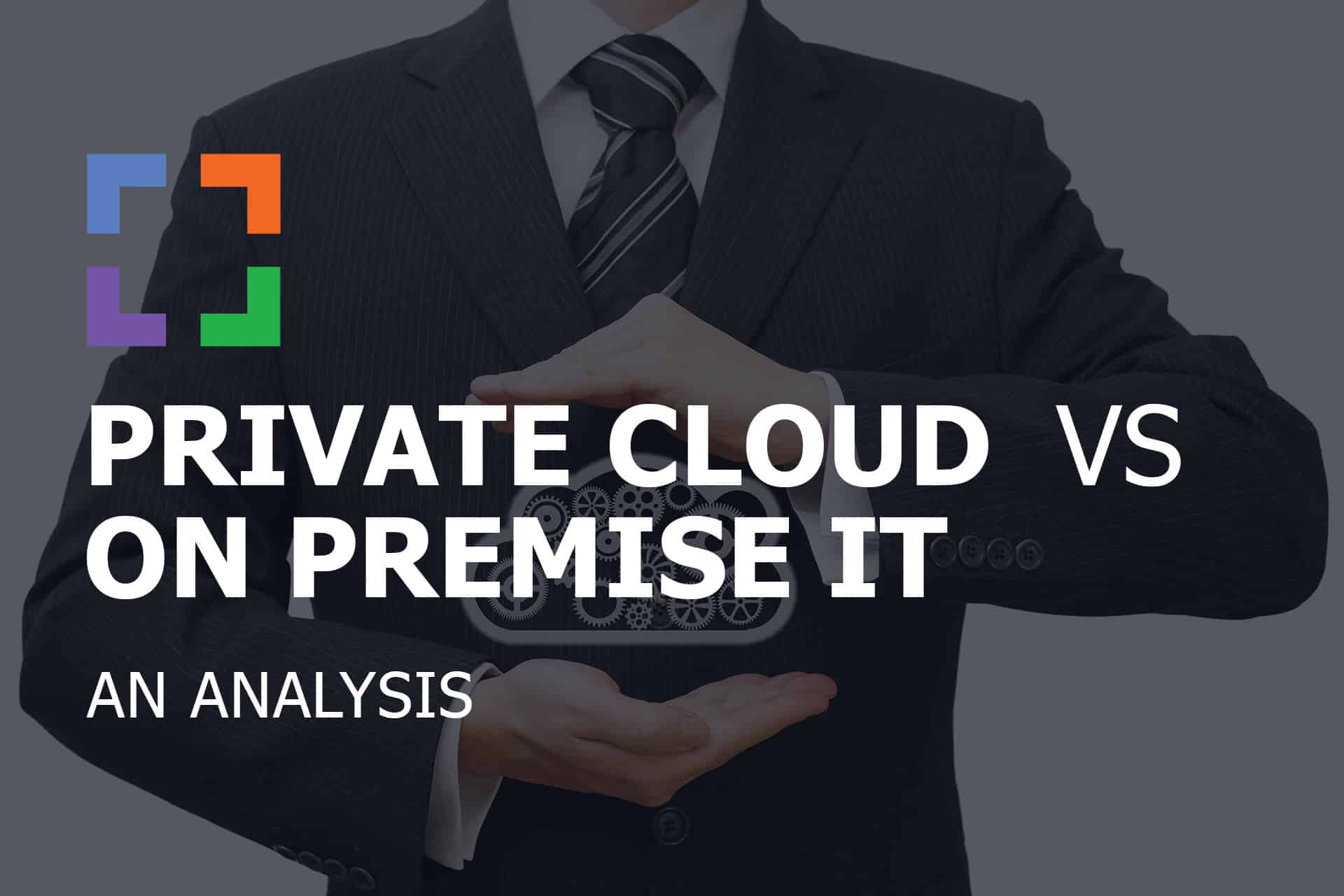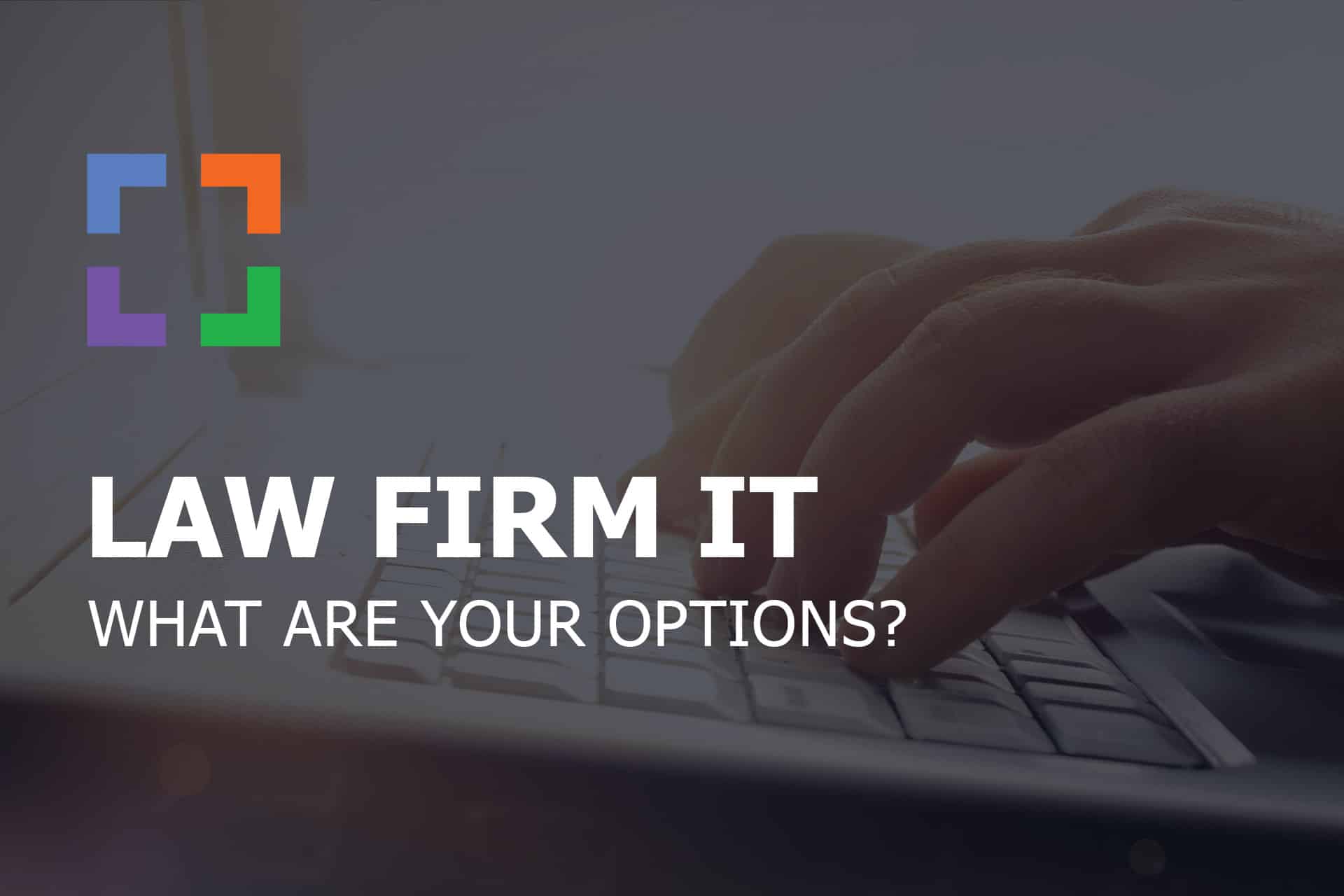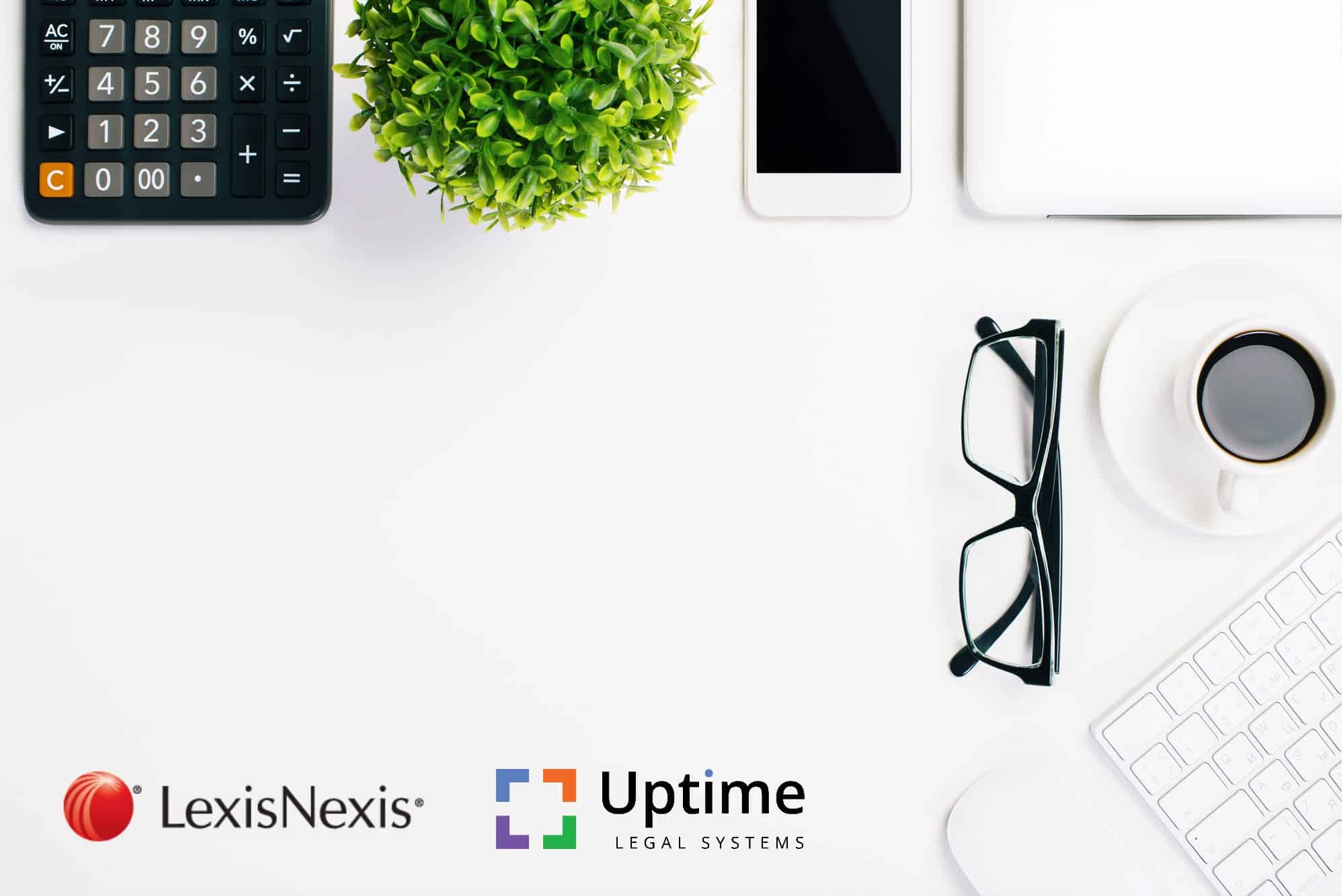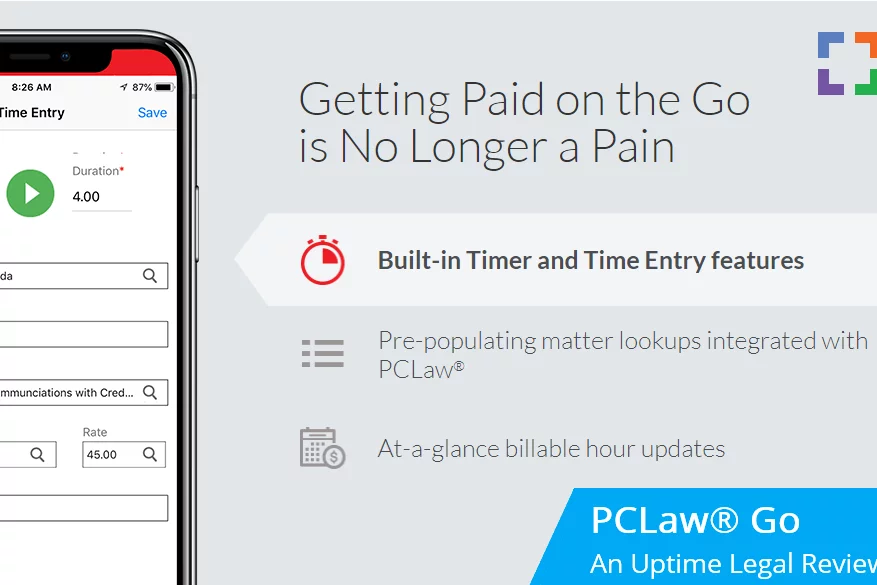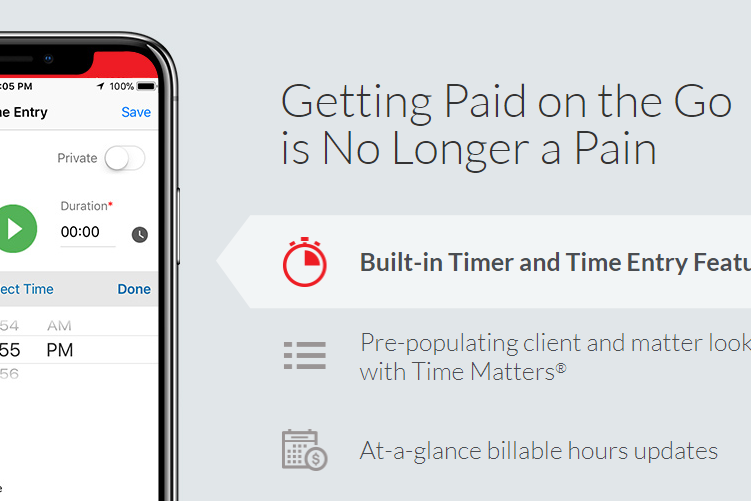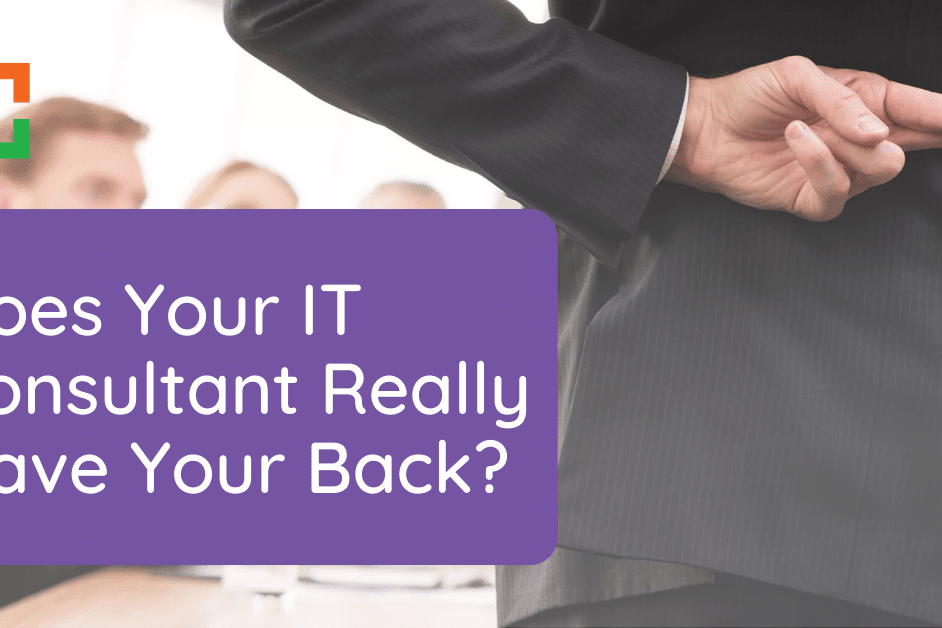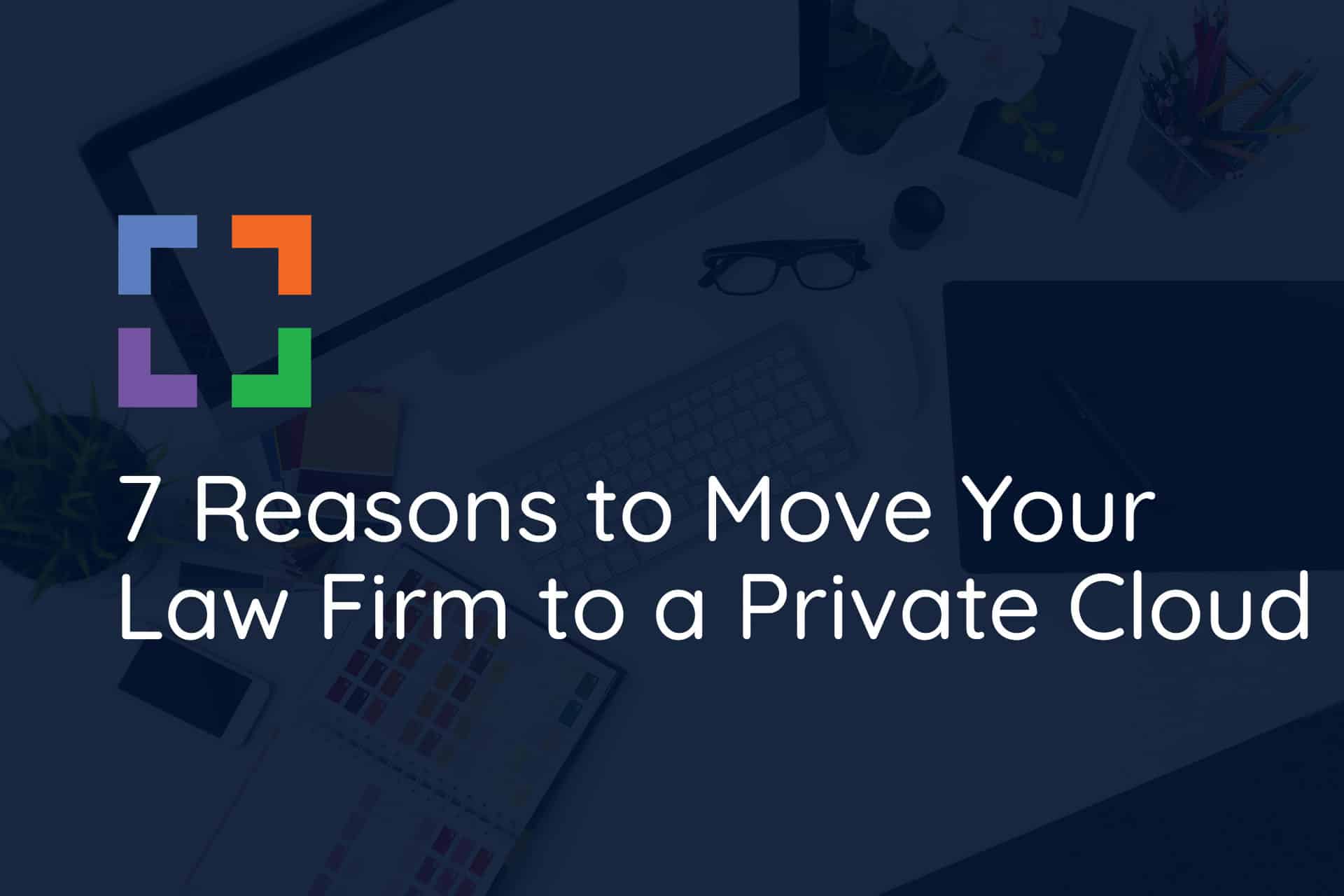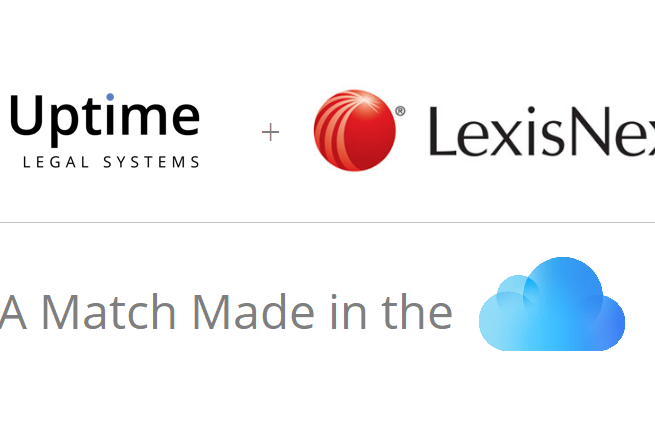Virtual Desktops for Law Firms: How They Work and Why Your Firm Should Use Them
 Let’s discuss virtual desktops for law firms.
Let’s discuss virtual desktops for law firms.
As a law firm, you need reliable, secure technology and the ability for your team to work from anywhere.
Virtual desktops promise this by allowing your law firm to access your important software and data from anywhere, anytime.
Now, you don’t need to choose between your favorite software and the flexibility of cloud-hosted solutions.
Aside from the incredibly useful nature of being able to work from anywhere, having a virtual desktop also promises various other benefits for your firm.
As you go through this guide, you can expect to understand why virtual desktops are a useful aspect for any law firm, as well as a practical steps to pursue on for your law firm.
Whether you’re aware of the workings of a virtual desktop or this is the first time you’re hearing about it, this guide will provide you with information and suggestions on how to utilize virtual desktops for law firms.
In This Article
- Introduction
- What is a Virtual Desktop?
- How Virtual Desktops Work
- What Software Can Be Used in a Virtual Desktop?
- 7 Benefits of Virtual Desktops for Law Firms
- Should My Law Firm Use Virtual Desktops?
- Virtual Desktop Costs
- Virtual Desktops vs. Cloud-Hosted Applications
- Doing Your Due Diligence
- Virtual Desktops - Frequently Asked Questions
Introduction
Simply put, virtual desktops for law firms use the cloud to provide access to your software and data from wherever you have a computer and internet.
When we hear “the cloud,” our minds often drift to popular web-based applications like Clio for law practice management, FreshBooks for accounting, or cloud storage platforms such as Microsoft OneDrive, Dropbox, and Google Drive.
However, the cloud’s potential extends far beyond these familiar tools.
Especially for larger law firms with a team of 8 or more, there’s a pressing need for more advanced tools than just basic web-based software and standard cloud storage. These firms require comprehensive case management and intricate accounting solutions. They also need a document storage system that goes beyond the rudimentary file and folder setup.
Moreover, many law firms are already invested in and accustomed to specific practice management software, such as ProLaw, Time Matters, Tabs3, PCLaw, Worldox, TrialWorks, among others.
For such law firms, diving into the world of Virtual Desktops could be the game-changer they’ve been searching for.
Move Your Legal Software to the Cloud
With Uptime Practice
- Cloudify Your Legal Software
- Expert Legal Software Hosting/Support
- Cloud Storage for Documents + Data
- End-to-End Security
- Office 365 + IT Support (Optional)
What is a Virtual Desktop?
It might sound techy, but it’s really straight-forward.
A Virtual Desktop operates much like the familiar Windows or Apple desktop you use daily, whether at home or the office.
The difference? It’s hosted in the cloud, granting you access from anywhere, anytime. This means your essential tools, from Microsoft Word, Excel, and Outlook to specialized law practice management and accounting software, are always at your fingertips.
With a Virtual Desktop, the software that’s typically exclusive to your office computer or tethered to your office servers becomes universally accessible. You can tap into it from any computer across the globe.
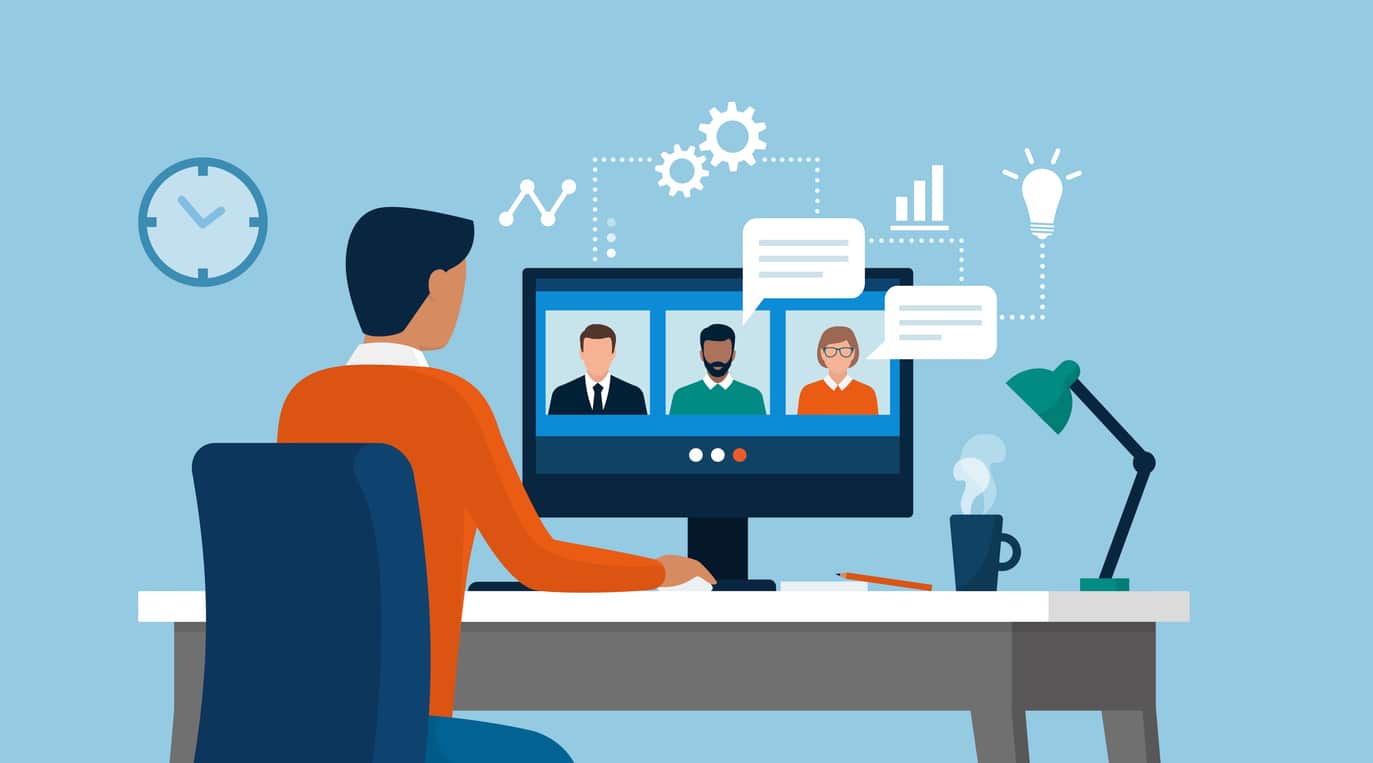
Often, you might hear Virtual Desktop solutions termed as “Desktop-as-a-Service” or DaaS, drawing a parallel to the well-known “Software-as-a-Service” or SaaS model.
Behind the curtain, the Virtual Desktop thrives on cloud servers managed by seasoned Cloud Service Providers.
This typically translates to a hassle-free experience for you: the provider oversees system maintenance, software updates, backups, and security. Your role, along with your team’s, is simplified to logging in when you start and logging out once done.
Related – Managed IT Support for Law Firms: Explore benefits such as: Boosted efficiency, enhanced security, and ensured compliance with specialized IT support.
How Virtual Desktops Work
In a traditional computing environment (called the “client/server” model), your core law firm software and files/folders/documents live on your law firm’s server. Your main applications (such as Microsoft Office, your law practice management software, your billing/accounting software) is installed on your physical, local desktop. That is: The workstation or laptop you use in the office.
In this traditional model, everything runs locally, and your applications are installed on your individual computer.
A Virtual Desktop is different. In a Virtual Desktop environment, very few, if any, applications are actually installed on your local computer. Often, the only icon on your local desktop is a shortcut to log into your Virtual Desktop.
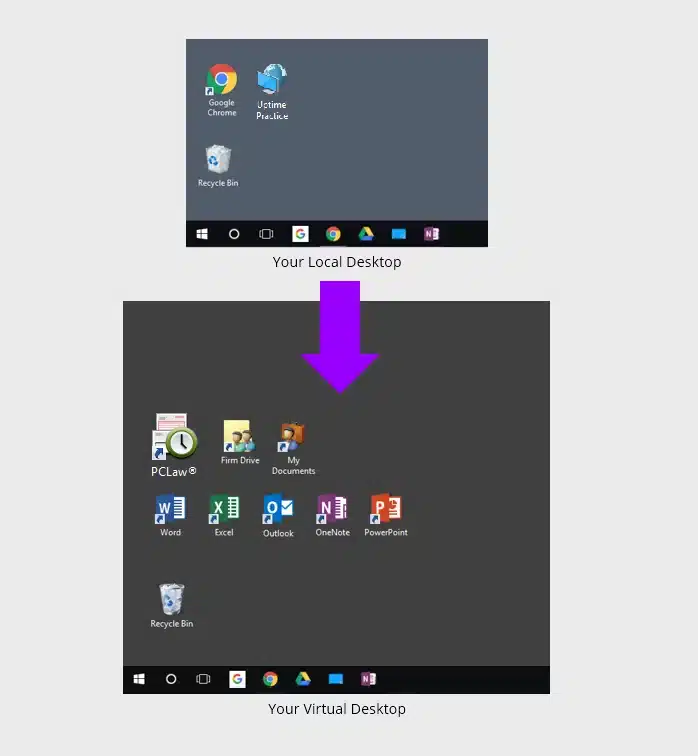
When you (or anyone in your team) logs into your Virtual Desktop, you’ll have access to all of your law firm’s software, documents and data, including:
- Your Law Practice Management Software
- Your Productivity Software (Microsoft Office)
- Your Billing & Accounting Software
- Your Document Management Software
- Your Email
- Your Files and Folders
This gives your entire firm access to all of your applications, documents and data, from anywhere, on any device.
Virtual Desktops also mean that you no longer have to install, update and maintain each of your applications on every computer within your firm. Instead, your Cloud Service Provider simply keeps all software updated for you.
What Software Can Be Used in a Virtual Desktop?
With the many clear advantages of using a Virtual Desktop for law firms, the question becomes: What software applications can run within a Virtual Desktop?
Virtual desktops can host virtually any Windows-based software. This is especially useful to law firms who run Microsoft Office, Adobe Acrobat, WordPerfect, and a myriad of practice management, case management, billing, accounting, and document management applications.
This includes today’s most popular law practice management and document management software. Traditional, premise-based practice management applications in particular tend to be more robust and feature-rich than their web-based counterparts. Virtual Desktops enable law firms to take advantage of the benefits of cloud computing, without abandoning their software for more basic, “watered-down” alternatives.
Quite a few software packages used by law firms can be run in a Virtual Desktop.



















Law firm’s should seek out a Cloud Service Provider that has extensive experience hosting these titles, and a cloud platform specifically optimized to run these specific law firm applications.
It’s also important to find a Cloud Service Provider that understand the workflow and the culture of law firms.
Related: Learn more about hosting your law firm software in a Virtual Desktop.

Uptime Practice was a true miracle when the pandemic struck. We moved to Uptime Practice and were working immediately.
Todd Tracy – The Tracy Law Group, PLLC
Under the Hood: Private Cloud
The Virtual Desktop is how each member of your law firm interacts with your cloud system. Under the hood, your Virtual Desktops are powered by something called a Private Cloud.
A Private Cloud is a hosted server (or set of hosted servers) that provides the necessary IT platform to host and run your legal software. In a Private Cloud solution, you’re effectively leveraging another company’s server, as opposed to buying/managing/maintaining your own.
Specifics vary by solution provider, but generally, a Private Cloud includes:
- Hosting for your Server-based Legal Software
- Secure Storage for your Documents and Data
- All Necessary Maintenance and Backups
- All Appropriate Data Security
- Updates, Patches, and Fixes As-Needed
- And of course - a Virtual Desktop for each member of your firm
Learn more about Private Cloud for Law Firms:
Related – Private Cloud 101 for Law Firms: Learn about the functions, costs, and reasons to utilize a private cloud.
Related – Azure for Law Firms: While you’re considering the private cloud, you may have come across Azure. See how it compares.
Related – AWS for Law Firms: Likewise, AWS provides cloud-hosting solutions. See how it lines up.
7 Benefits of Virtual Desktops for Law Firms
Anywhere Access
In the fast-paced legal world, lawyers often find themselves working outside traditional office settings, be it in courtrooms, during client meetings, or while on the move.
Virtual Desktops ensure that they have consistent access to their work environment from any location. This flexibility ensures that urgent matters can be addressed promptly, and client needs are always met.

Enhanced Security
Client confidentiality is paramount in the legal profession. Virtual Desktops offer advanced security features such as encryption, multi-factor authentication, and regular security audits.
This means that sensitive client data is safeguarded against breaches, ensuring compliance with regulations and maintaining the firm’s reputation.
Cost-Efficiency
Traditional IT setups involve significant investments in hardware, maintenance, and periodic upgrades. Virtual Desktops, on the other hand, operate on a cloud-based model, drastically reducing these overhead costs.
The savings can then be redirected to other essential areas, such as talent acquisition or marketing.
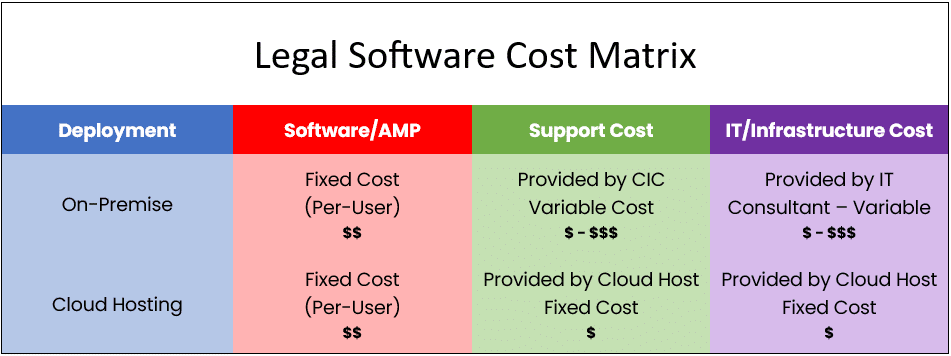
Reduced Burden of Server Maintenance and IT
A Virtual Desktop is an excellent solution for alleviating server burden primarily because it shifts the computational and storage demands from local servers to cloud-based infrastructure.
Traditional on-premises servers often face challenges in scaling, require regular maintenance, and can become overwhelmed with increasing data and application loads.
In contrast, Virtual Desktops operate on robust cloud servers managed by specialized providers. These cloud servers are designed to handle vast amounts of data and can be easily scaled to accommodate growing needs.
As a result, law firms can enjoy optimal performance without the overheads and limitations of maintaining and upgrading physical servers, ensuring a smoother, more efficient IT operation.
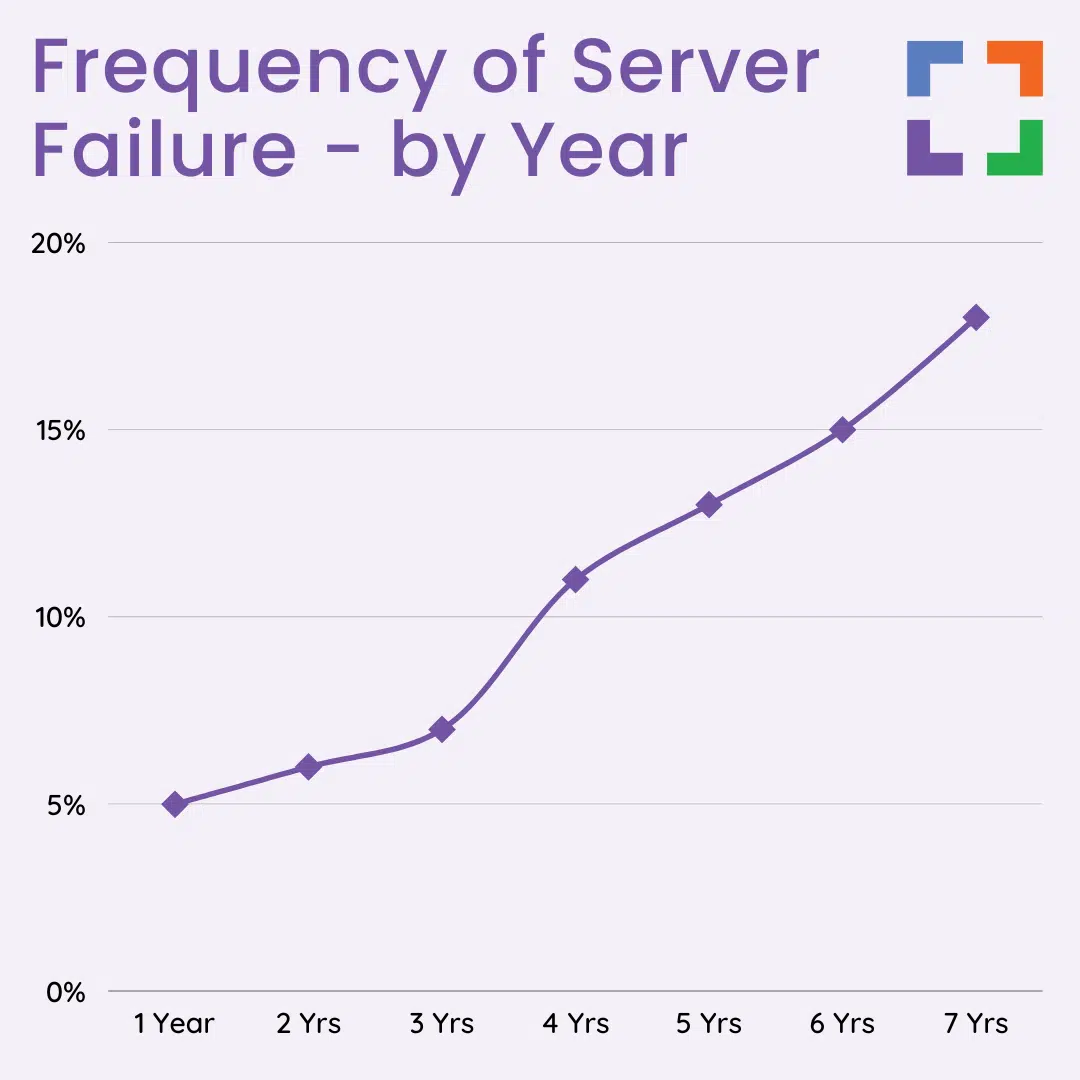
Outsourcing the management of the Virtual Desktop to a Cloud Service Provider means that routine IT services for law firms, such as maintenance, updates, and troubleshooting, are handled externally.
This allows the in-house IT team to focus on strategic initiatives, driving innovation and growth for the firm.
Enhanced Collaboration
With all data stored in a central location, there’s a reduced risk of data discrepancies or losses.
This centralization ensures that all team members have access to the same, up-to-date information, leading to better decision-making and streamlined operations.
Moreover, Virtual Desktops offer tools that promote real-time document sharing and collaborative application access, ensuring teams can synergize seamlessly, regardless of their geographical location.
Predictable IT Budgeting
The subscription-based model of Virtual Desktops offers transparency in IT expenses.
Law firms can anticipate monthly or yearly costs, making budgeting and financial planning more straightforward.
For example, take a look at the typical process for obtaining IT support for on-premise software.
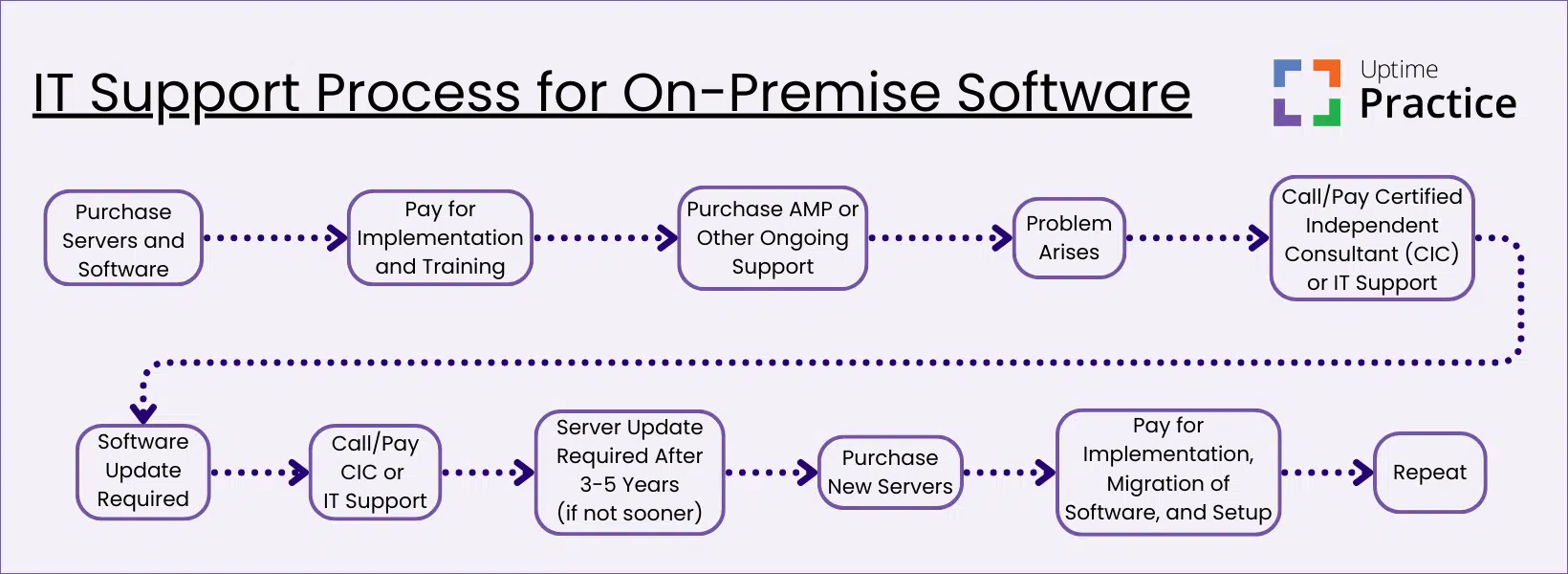
On the other hand, a cloud-hosted solution promises easier, more predictable IT support.
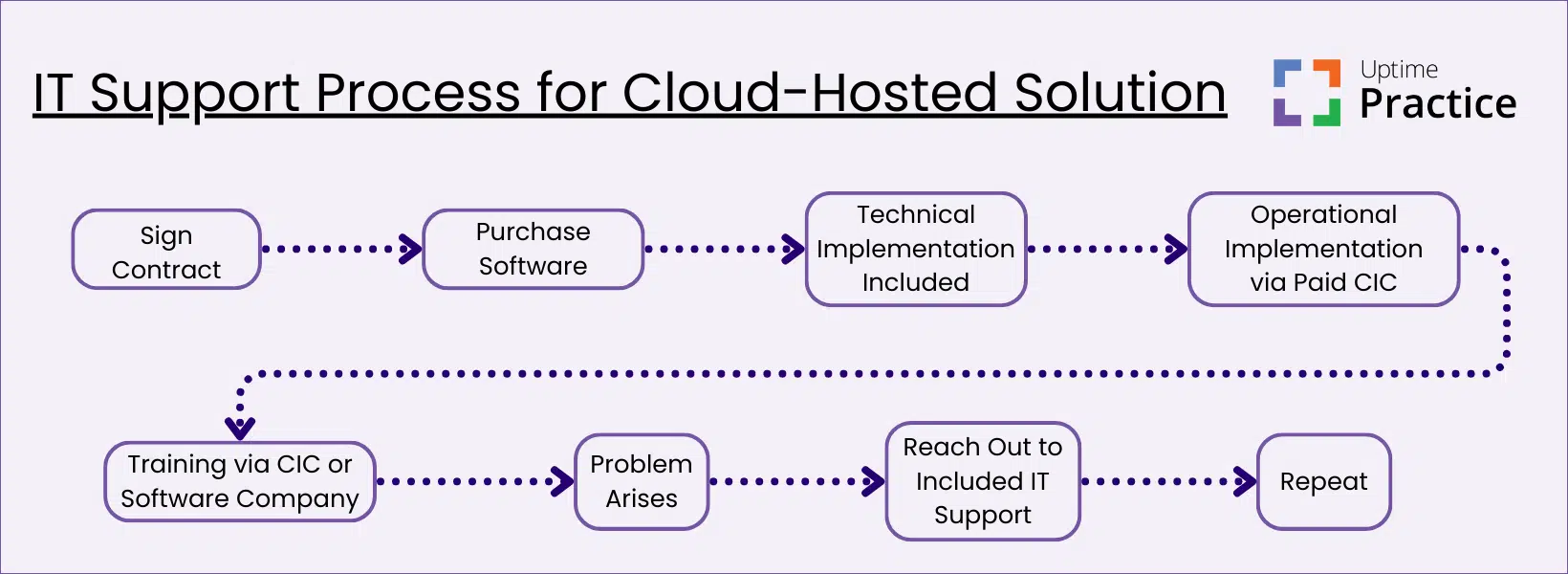
Flexible Work Environment
The modern workforce values flexibility. Virtual Desktops support remote work, allowing lawyers and staff to maintain a healthy work-life balance.
This not only boosts morale but can also be a key differentiator in attracting top talent.
Should My Law Firm Use Virtual Desktops?
Virtual Desktops bring many advantages to law firms. Specifically, Virtual Desktops are likely the best technology route in any of the following scenarios.
- Your firm uses a combination of devices (Windows, Macs, Tablets)
- Your firm needs to be able to work from anywhere
- You're tired of dealing with servers and IT headaches
- Your firm needs to keep your applications an data secure
- Your firm is committed to it's (premise-based) law practice management software
In Love with a Server-Based Software?
Use Uptime Practice to Host It!
- Get Your Firm's Software to the Cloud
- Access it From Anywhere
- Avoid Server Maintenance
- Pursue a Virtual Law Firm
- Get Included Support
We’ll cover selecting the right Virtual Desktop provider, and doing your due diligence, shortly.
Virtual Desktop Costs
The cost of a law firm Virtual Desktop solution will vary based on the number of people (users) in your firm, and the specific legal software your firm uses (more heavy-duty software requires more computing power). The cost also varies based on the number of applications you’ll be hosting in the cloud, and (to a lesser degree), how much data you’ll store in the cloud.
- A simple Virtual Desktop implementation for a single application might cost less than $90 / user / month.
- A more sophisticated Virtual Desktop implementation for multiple applications might cost $150 / user / month or more.
Virtual Desktop platforms, and Private Cloud solutions in general, are almost always more economical than owning and managing in-house servers.
If you compare the up-front and ongoing cost of buying, managing, maintaining and repairing servers over a multi-year period, to the predictable, straight forward per-user-per-month cost model of a Virtual Desktop, you’ll see that near and long-term: a Virtual Desktop almost always has the financial advantage.
(You can do your own side-by-side comparison with our Cloud Cost Calculator.)
Related:
Related – The Financial Case for Cloud for Law Firms: Using the cloud is a surefire way to decrease your costs while enhancing functionality.
Related – Cloud Cost Calculator for Law Firms: Figure out how much the cloud will cost you and enjoy seeing the results of savings.
Virtual Desktops vs. Cloud-Hosted Applications
Understanding how law firm virtual desktops work, conceptually, is one thing. You might be wondering: What is the process of working in a Virtual Desktop?
You log onto your computer and access the internet the same way you normally would.
The main difference is that instead of going to any particular application, you click on your virtual desktop icon that brings you to your documents, hosted applications, and the rest of your data.
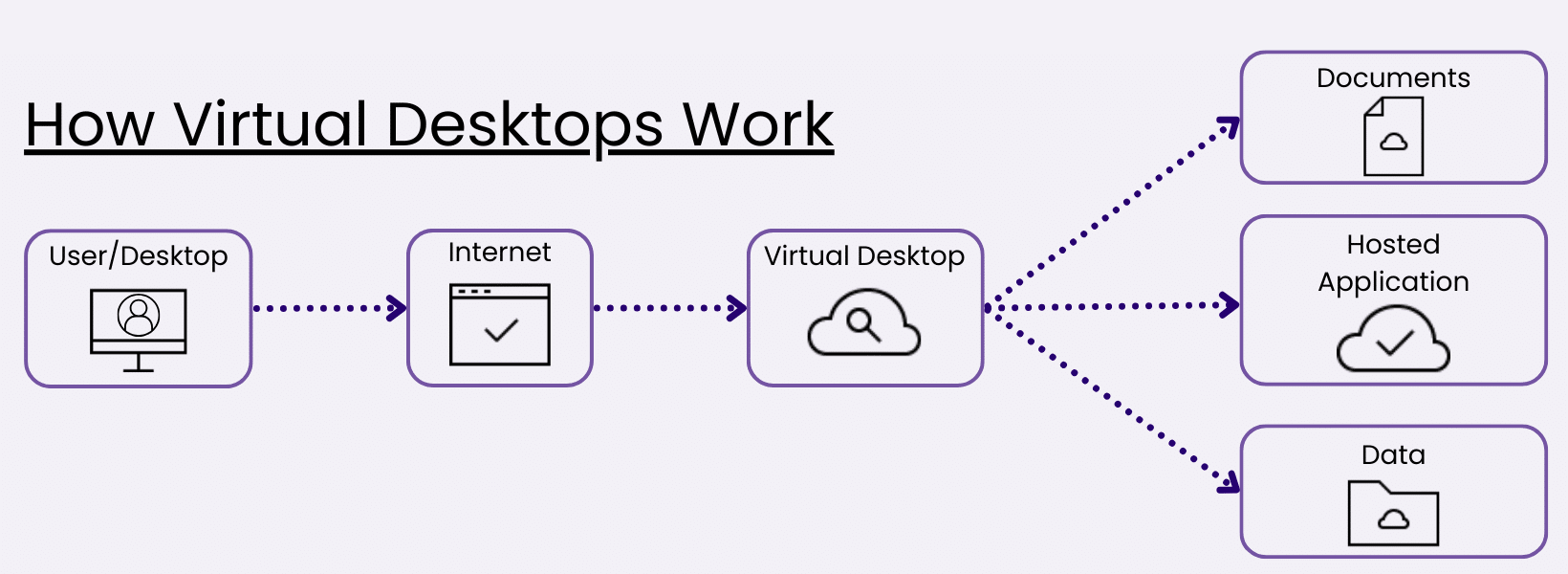
You have a desktop for shortcuts, apps and files. You have a start menu, a Recycle Bin, and any other items or options that your firm may need. Most law firm Virtual Desktops will be standardized, with the apps and tools everyone in your firm needs, and can be additionally customized on a person-by-person basis.
By way of example, watch the demonstration video of Uptime Practice, our own cloud-based Virtual Desktop platform for law firms.
Alternatively, you could decide to host a single application on the cloud with the help of a service, like Uptime Practice Go.
In this scenario, your process is pretty much the same as a virtual desktop.
However, instead of going to your virtual desktop first, you click on the icon that you have hosted, and through the internet, access the application that’s hosted on our servers.
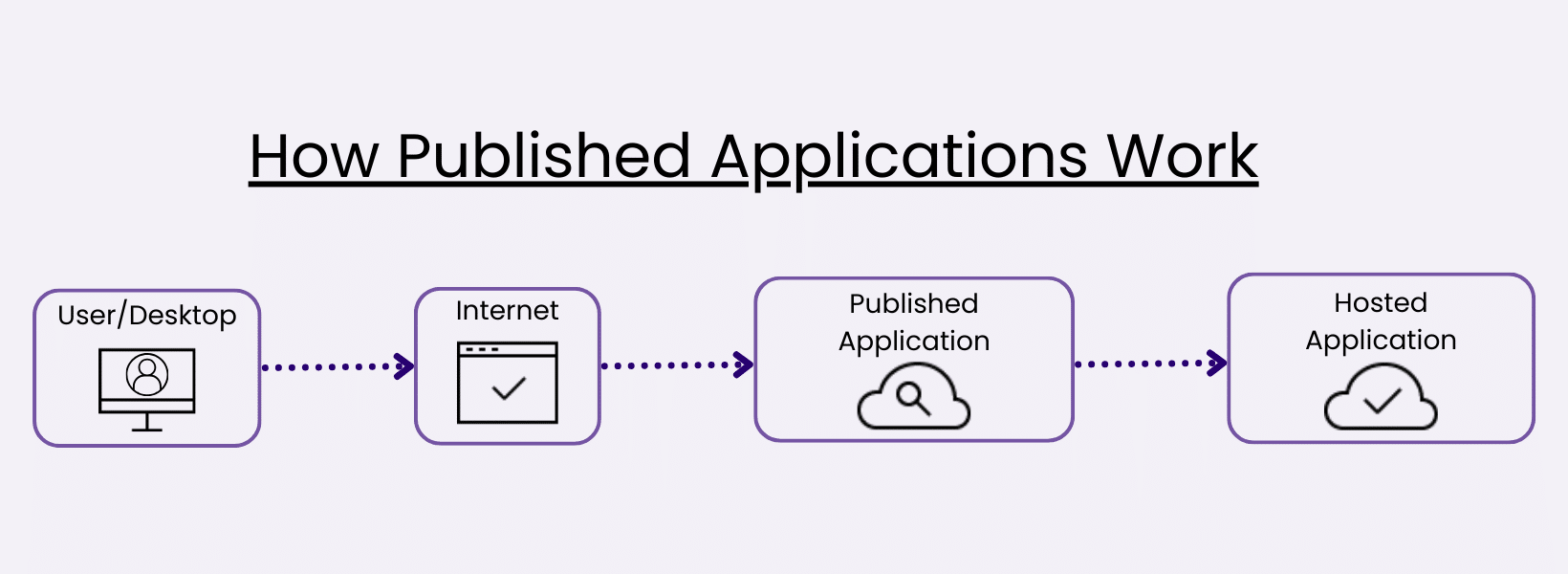
Doing Your Due Diligence
As this article describes, Virtual Desktops bring a whole host of benefits and advantages to law firms. It’s important, however, that if your law firm goes this route, that it finds and selects the right Virtual Desktop/Private Cloud provider for your firm.
Today, there are many IT companies and Cloud Service Providers that offer Virtual Desktop platforms. It’s important to not only make sure that the company you select has experience hosting and supporting the software that your firm relies on, but that the company has the infrastructure and security in place to keep your data secure and your firm up and running.
Among other things, you’ll want to ensure that your chosen Virtual Desktop provider:
- Has extensive experience hosting your legal software
- Owns their own infrastructure (server/network equipment)
- Employs bank-grade data security (including data encryption)
- Has multiple datacenters across the united states
- Makes regular backups of your data
- Serves many other law firms, like yours
For more information on how to evaluate appropriate Cloud Service Providers for your firm, read our checklist: 25 Things to Require of Your Law Firm Cloud Provider.
Related – 25 Things To Ask Your Legal Private Cloud Provider: Knowing what to ask will ensure that you end up with the best solution for your cloud needs.
I hope you find this Virtual Desktop guide for law firms useful. What questions do you still have? Post a reply in the comments section below, or get in touch with us to learn about Virtual Desktop solutions for your law firm.
Onward and Upward!
Virtual Desktops - Frequently Asked Questions
A Virtual Desktop is a desktop that is hosted in the cloud, so you can access your software anytime, anywhere.
Your chosen Cloud Service Provider takes all of the software that you need and hosts it on their own servers. Then, you are provided a single access point that allows you to utilize all of your software from anytime, anywhere.
Virtual desktops can host virtually any Windows-based software. This is especially useful to law firms who run Microsoft Office, Adobe Acrobat, WordPerfect, and a myriad of practice management, case management, billing, accounting, and document management applications.
- A simple Virtual Desktop implementation for a single application might cost less than $90 / user / month.
- A more sophisticated Virtual Desktop implementation for multiple applications might cost $150 / user / month or more.
Spend enough time ensuring that your chosen Virtual Desktop Provider is capable of handling your software efficiently and seamlessly.
Taking the time to ensure that they have proper working procedures, security protocols, etc. will save you from a lot of headache down the road and will provide you with tons of benefit now and later.
Uptime Practice:
The IT & Cloud Platform for Law Firms.
Uptime Practice is a suite of Managed IT and cloud services, made exclusively for law firms.
Practice Next
Technology + Legal Software Support for Modern Law Firms
Practice Next is a suite of Managed IT, Legal Software Support, and Cloud Essentials, made just for law firms.
-
Practice Next is a suite managed IT, technology essentials and legal software support.
-
Practice Next includes unlimited IT and legal software support, Microsoft 365, legal-centric cloud storage and more.
-
Practice Next pairs great with cloud-based legal software such as Clio Manage, CosmoLex, MyCase and more.
Practice Go
Cloudify Your Legal App
Does your law firm already have a cloud strategy, but have one premise-based application still running on onsite servers? Practice Go is for you.
- With Practice Go, we effectively turn your desktop/server- based legal software into a cloud application (a Published App), freeing your firm from the limitations of traditional software.
- Practice Go can cloudify your PCLaw, Time Matters, Tabs3, ProLaw, Juris, QuickBooks and more.
Practice Foundation
Complete Private Cloud for Law Firms
If your law firm needs a central, secure cloud platform for all of your legal software, documents and data, Practice Foundation is for you.
-
Practice Foundation is an end-to-end cloud platform that will host all of your firm's applications and documents, and will optionally include Office 365 + unlimited IT support. Everyone in your firm logs into a Virtual Desktop where they'll find all of their apps and docs.
-
Practice Foundation works with PCLaw, Time Matters, Tabs3, ProLaw, Juris, QuickBooks, Timeslips, TrialWorks, Adobe Acrobat and more.
Not Sure Which Edition You Need?
No problem. Check out our quick Comparison Chart for Uptime Practice, or Get in Touch to talk with our sales team.

Dennis Dimka
As the founder and CEO of Uptime Legal Systems, I've had the privilege of guiding our company to become a leading provider of technology services for law firms.
Our growth, both organic and through strategic acquisitions, has enabled us to offer a diverse range of services, tailored to the evolving needs of the legal industry.
Being recognized as an Ernst & Young Entrepreneur of the Year Finalist and seeing Uptime Legal ranked among the Inc. 5000 list of fastest-growing private companies in America for eight consecutive years are testaments to our team's dedication.
At Uptime Legal, we strive to continuously innovate and adapt in the rapidly evolving legal tech landscape, ensuring that law firms have access to the most advanced and reliable technology solutions.
Related Posts
September 30, 2024
How to Properly Utilize the 2024 Legal Software Report
June 11, 2024
Which Uptime Practice Solution Is Right for You?
April 1, 2024
The Financial Case for Cloud for Law Firms
March 8, 2024
25 Things To Ask Your Legal Private Cloud Provider
March 5, 2024
How to Use ProLaw in the Cloud in 2025
January 8, 2024
How to Use Orion Legal Software in the Cloud in 2025
January 8, 2024
How to Use Time Matters in the Cloud in 2025
January 8, 2024
How to Use Juris in the Cloud in 2025
January 8, 2024
How to Use Tabs3 in the Cloud in 2025
January 8, 2024
How to Use TrialWorks in the Cloud
January 8, 2024
How to Use PCLaw in the Cloud in 2025
January 8, 2024
How to Use Timeslips & QuickBooks in the Cloud in 2025
December 15, 2023
How to Use Worldox in the Cloud in 2023
December 15, 2023
7 Reasons Your Law Firm Should Consider Tabs3
December 15, 2023
ProLaw Workspace – Review & Guide for Law Firms
December 15, 2023
TrialWorks – An Uptime Legal Review
December 15, 2023
Cybersecurity for Law Firms
December 8, 2023
Managed Cloud Services for Law firms
October 24, 2023
AWS for Law Firms: A Complete 101
October 4, 2023
Azure for Law Firms: A Complete 101
September 28, 2023
Best Law Practice Management Software (2025)
September 5, 2023
Juris Support – How to Get Help for Juris
August 30, 2023
Tabs3 Support – How to Get Help for Tabs3
August 23, 2023
ProLaw Support – How to Get Help for ProLaw
July 24, 2023
PCLaw Support – How to Get Help for PCLaw
July 20, 2023
Private Cloud 101 for Law Firms
March 24, 2023
Best Law Firm Payment Processing Solutions
December 8, 2021
Key Trends from the 2021 Legal Trends Report
February 24, 2021
Uptime Legal Joins the Thomson Reuters Marketplace
November 18, 2019
Best Legal Practice Management Software for 2021
September 16, 2019
The Financial Case for Cloud for Law Firms
June 17, 2019
Law Firm IT – What Are Your Options?
June 10, 2019
5 Things to Require of Your Law Firm IT Provider
January 28, 2019
PCLaw® Go – An Uptime Legal Review
January 7, 2019
Time Matters® Go – An Uptime Legal Review
June 29, 2018
Managing Law Firm IT Support
October 24, 2017
